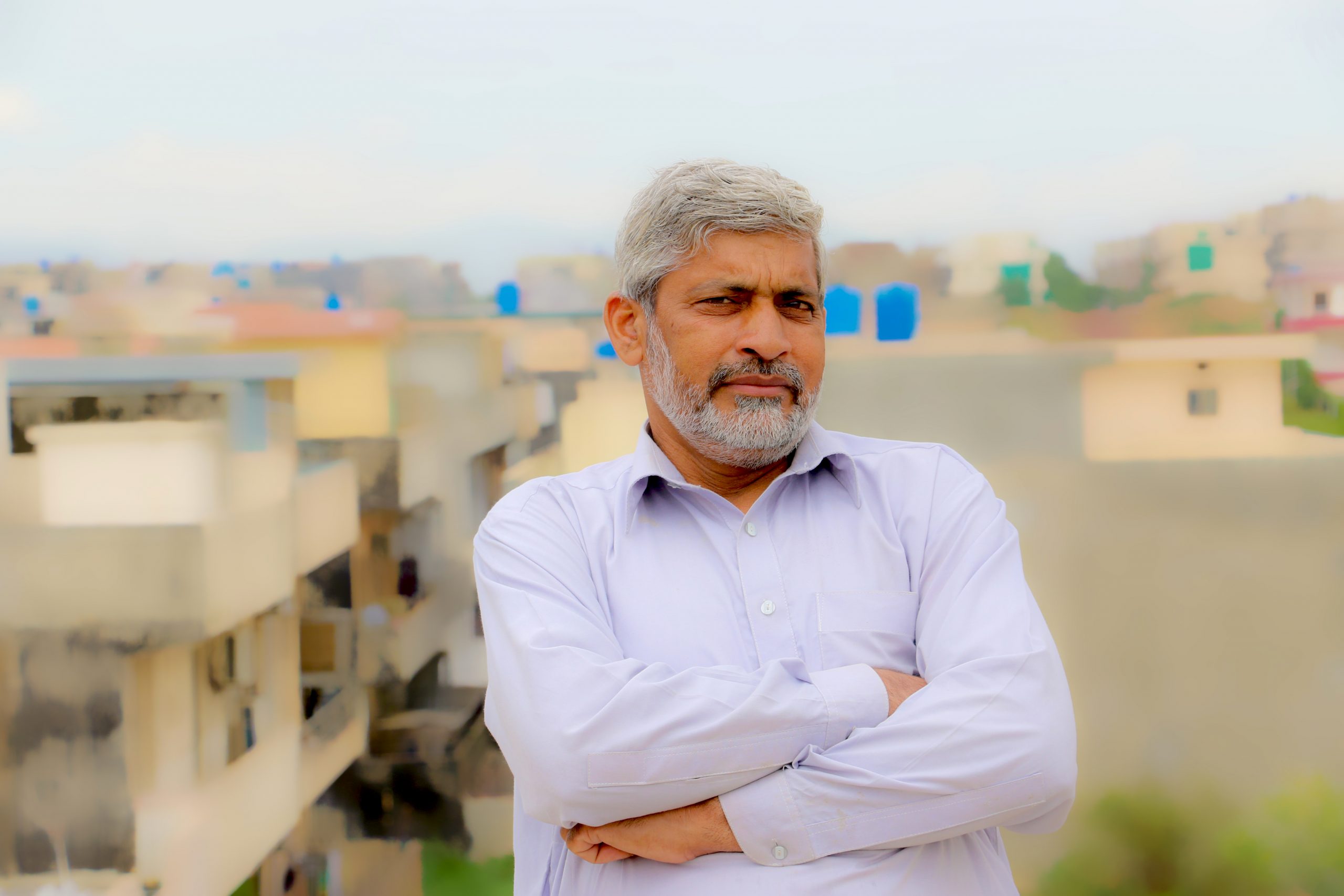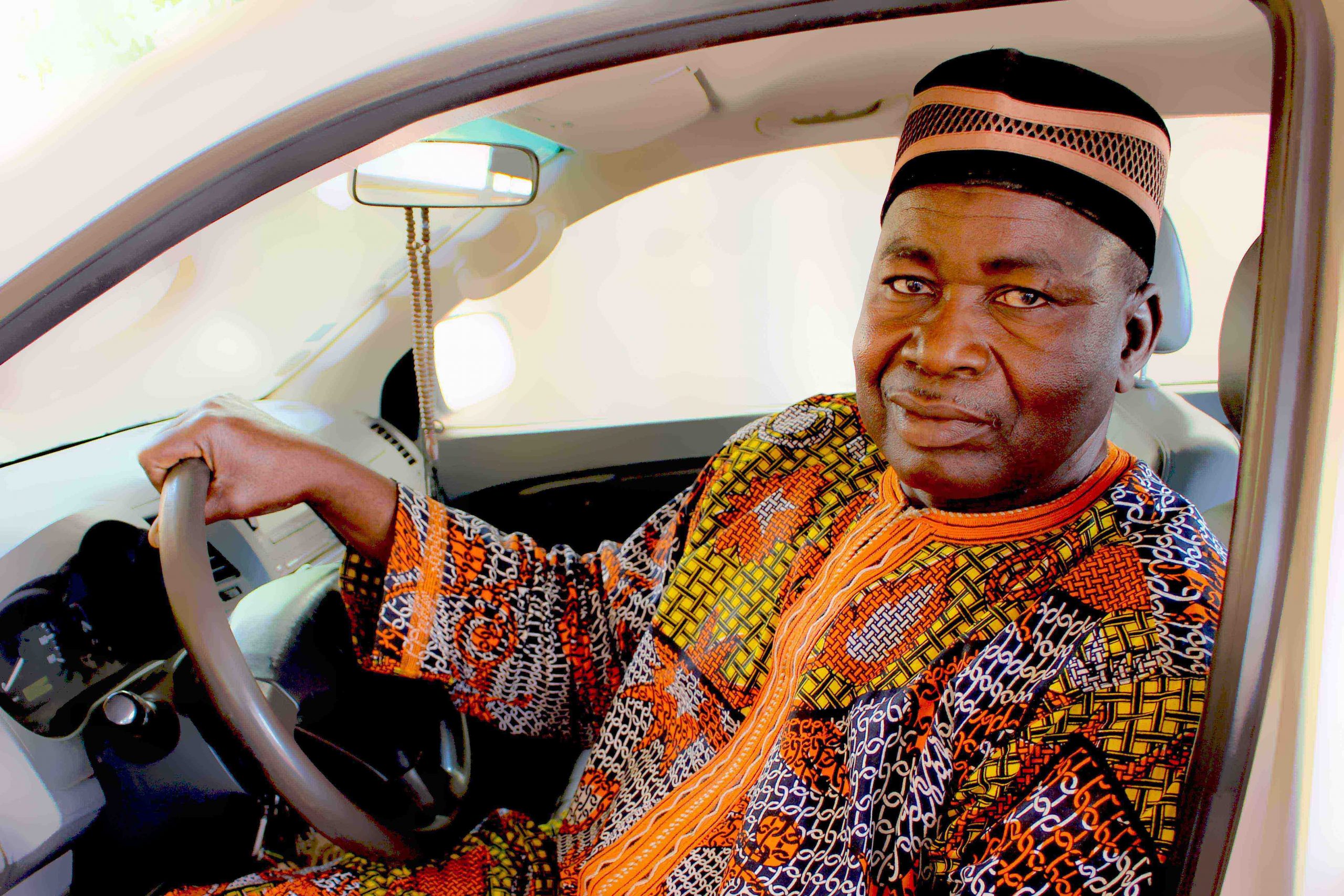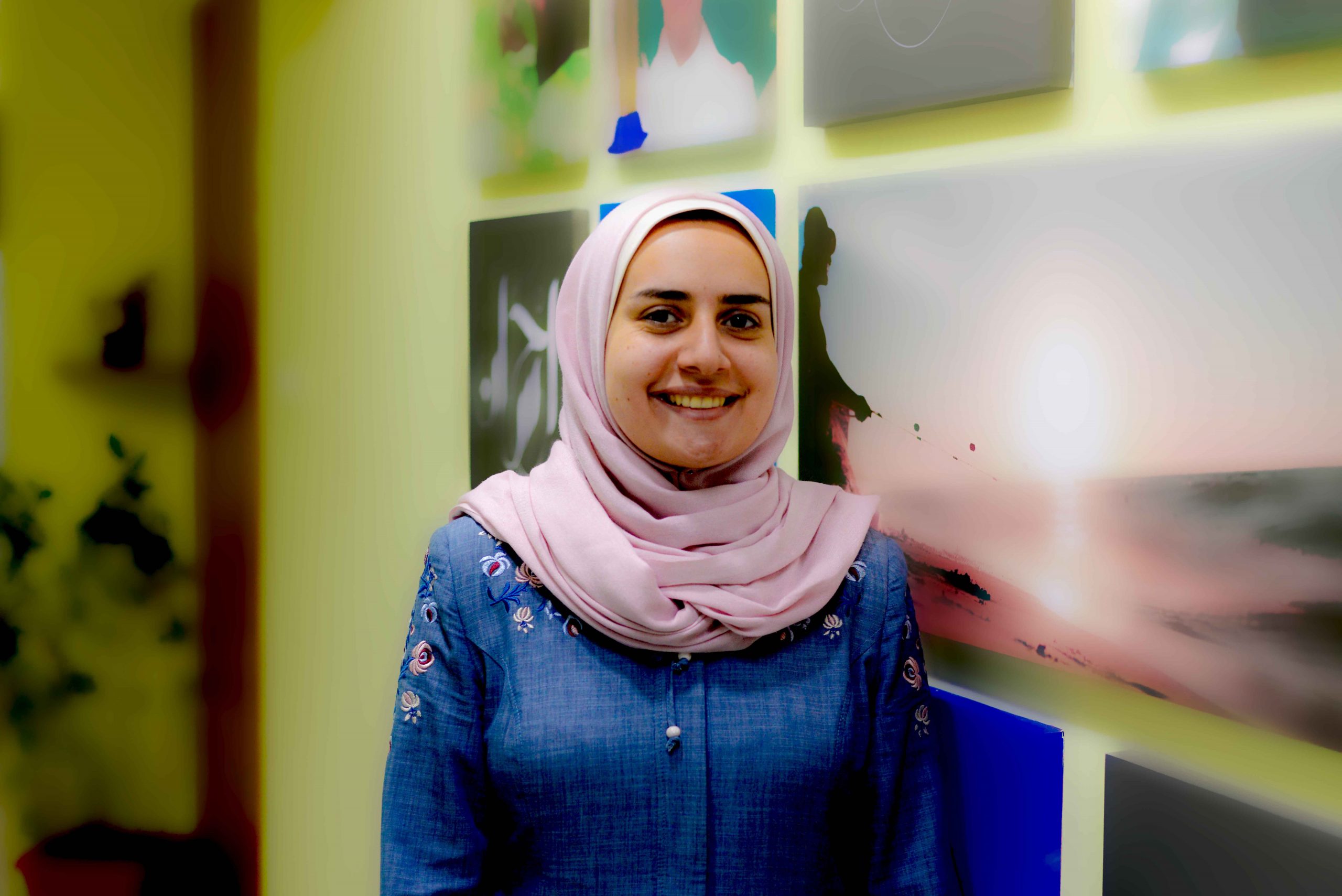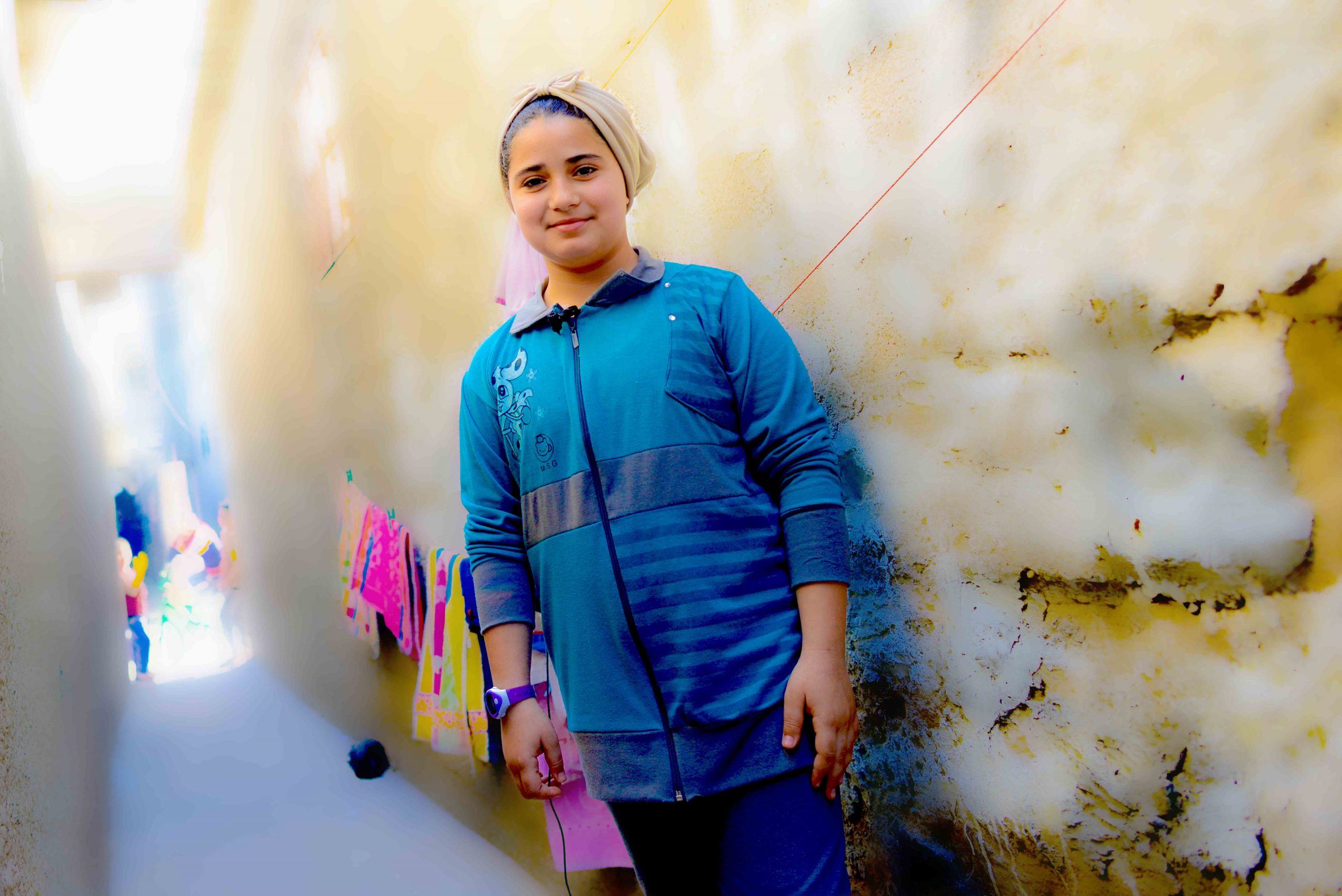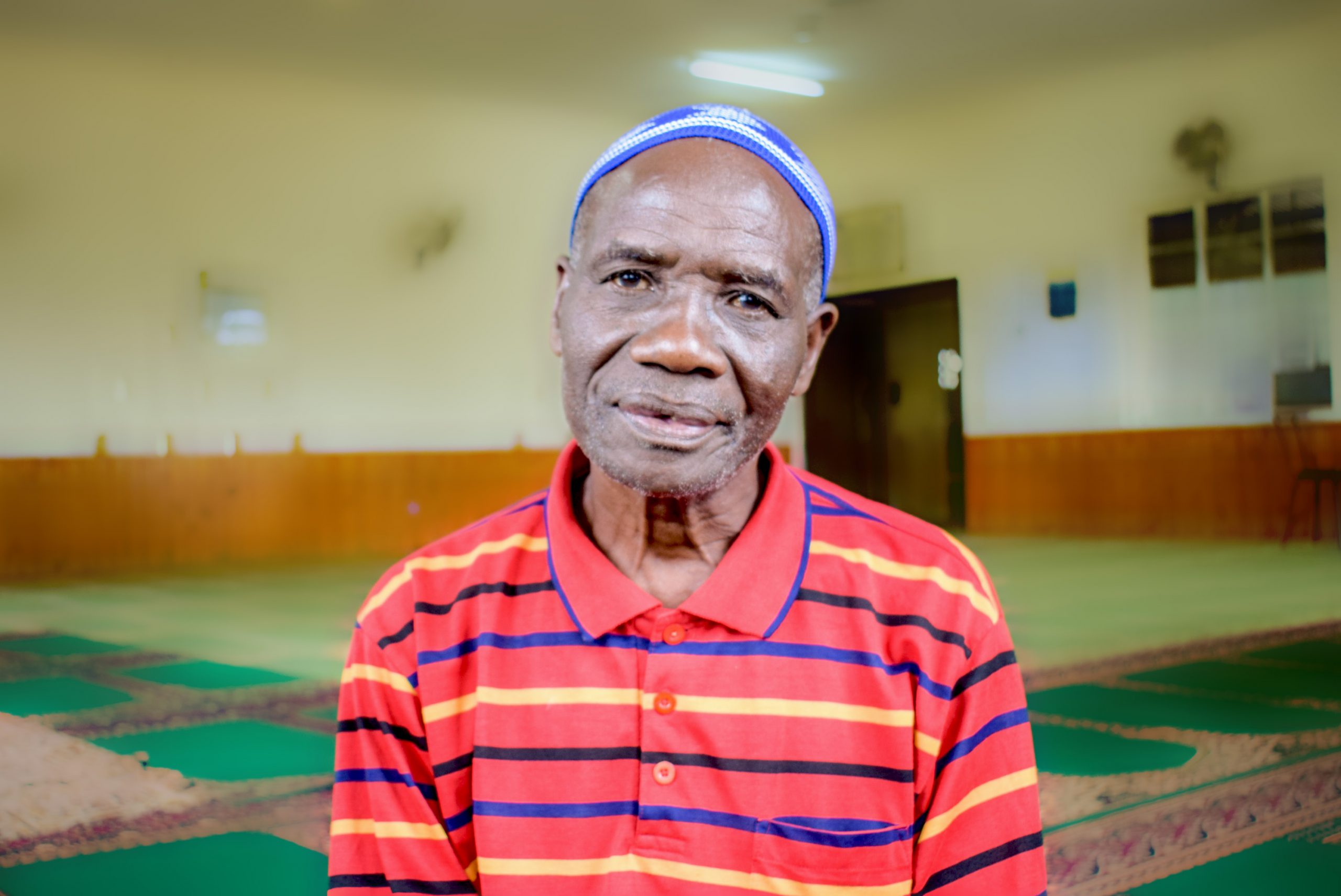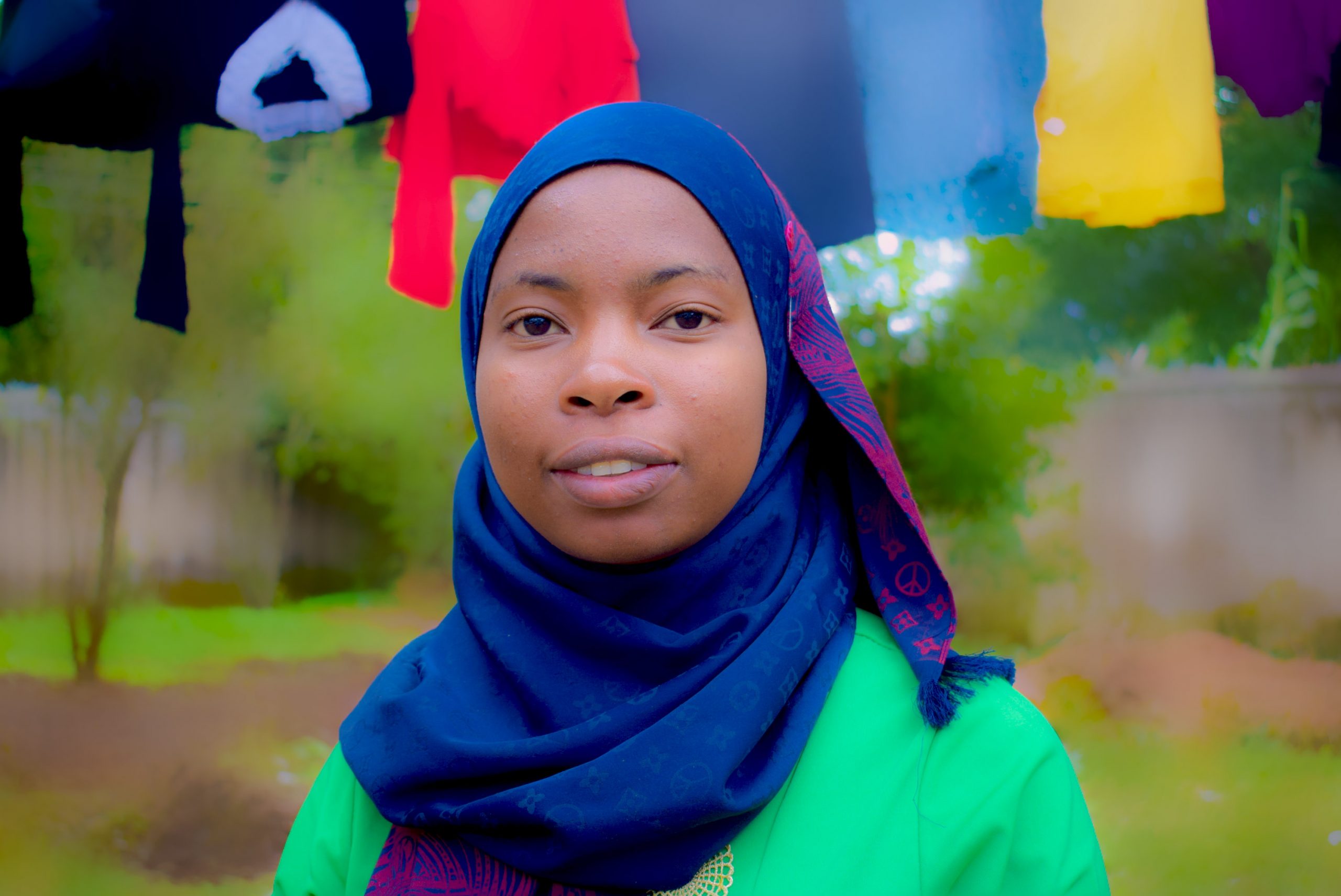The holy month of Ramadan is something that 1.8 billion Muslims enjoy together.
From sunrise to sunset Muslims will abstain from eating any food or drink. It is a time to increase in spirtuality, religious observance and good deeds.
Follow along with us this month as we showcase the Ramadan experiences of people across the globe.
Day 1: Ramadan in Nepal with Akhtari
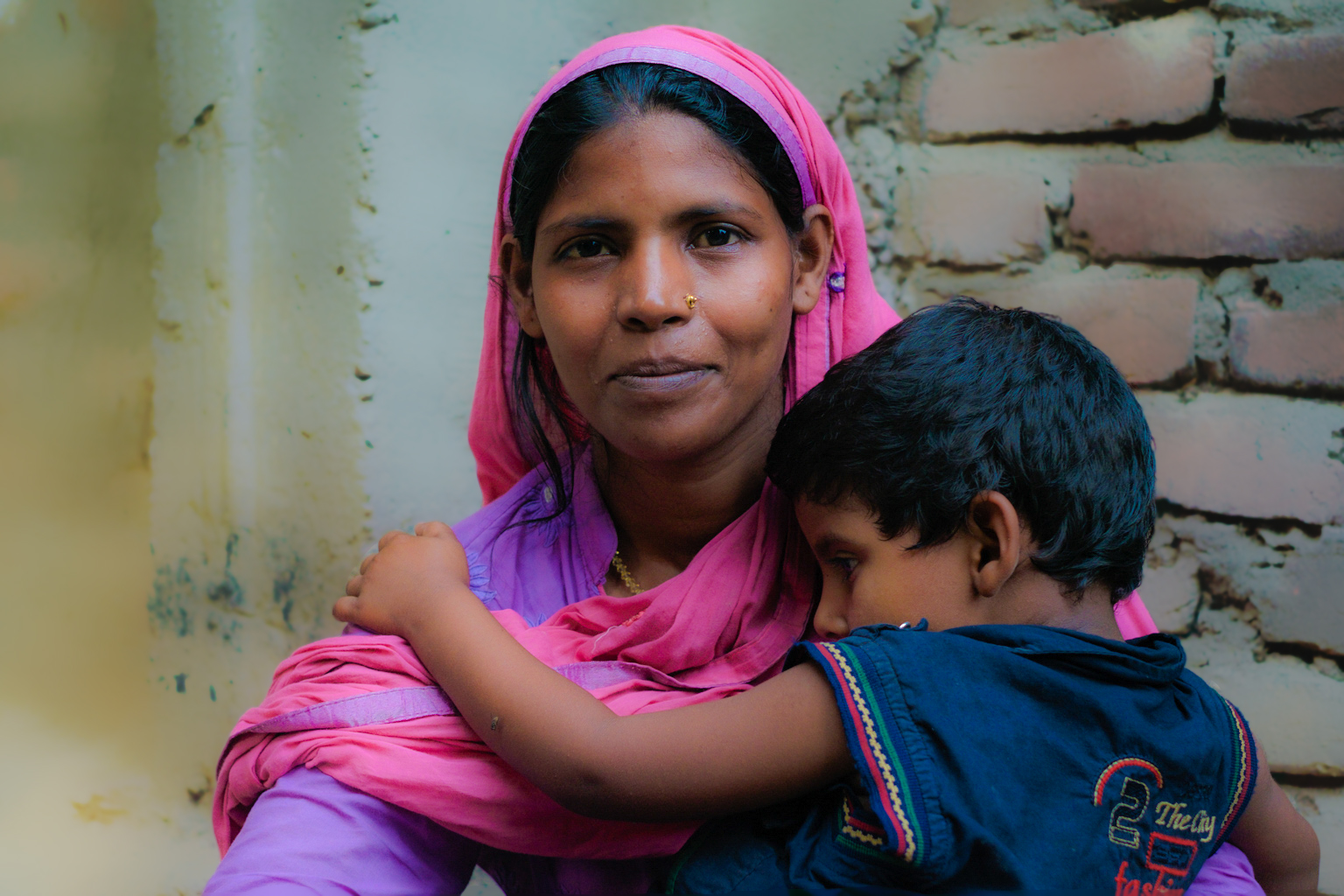
Celebrating Ramadan with family is the best part of this holy month for Akhtari. Many of her family members who have been away for work or studies come home for Ramadan.
“The beauty of Ramadan is that we help each other, pray together, share our food, and share our happiness.”
Akhtari is careful about the food she and her family eat after fasting. “Fruits and fish mainly”, she said, describing her meal during Ramadan. “We pay special attention to our food in this month. We eat rice, vermicelli, sweets, meat and other different varieties of food. However, we always eat dates to break our fast.”
Akhtari comes from a poor economic background, but she feels blessed to have received support from others in times of need during Ramadan.
“I will always adore Ramadan—30 days full of festive spirit”, she said.
Day 2: Ramadan in Syria with Tahir
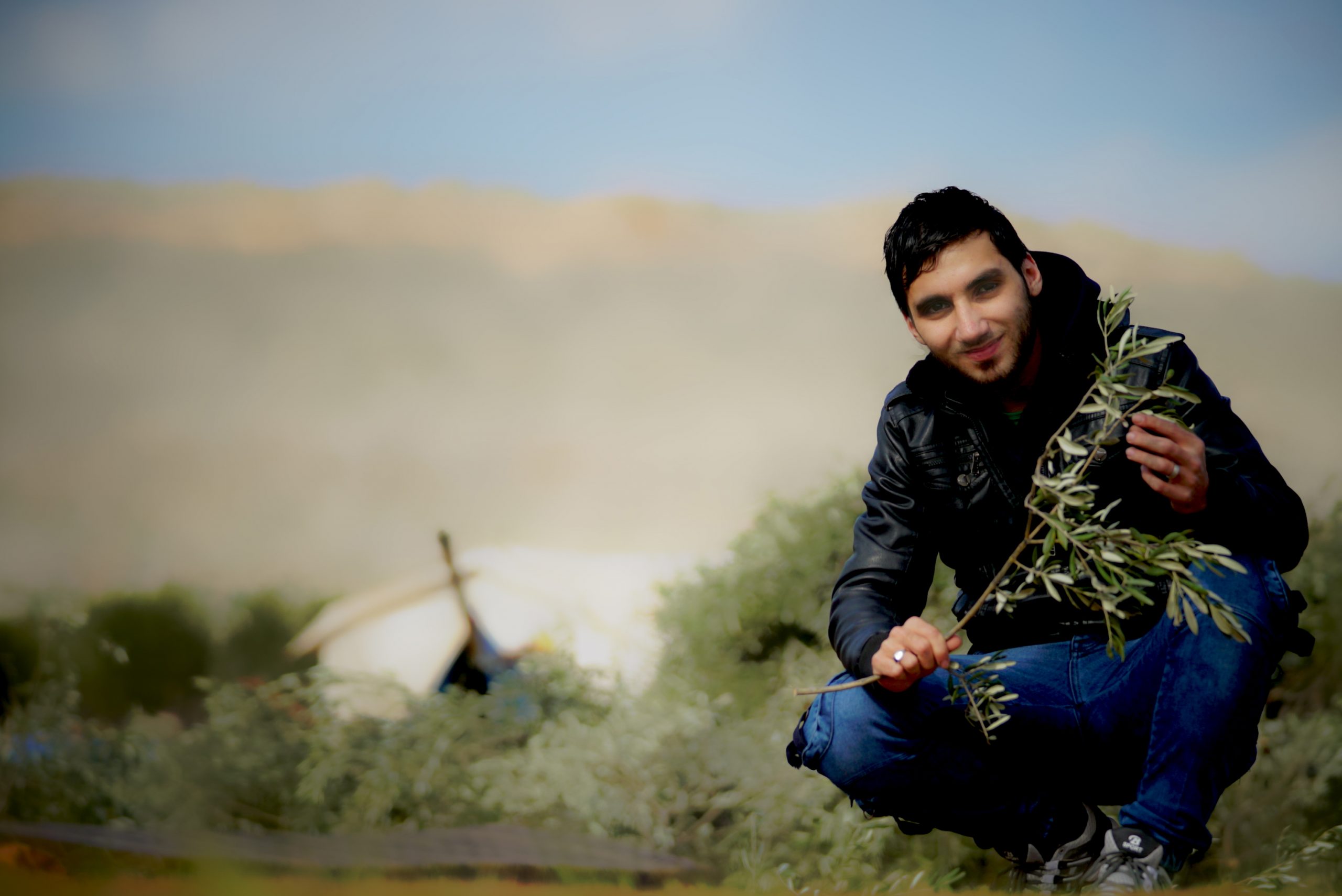
Tahir remembers how Ramadan felt as he grew up and how people used to behave during this month.
“Before the conflict mosques and streets were decorated in order to celebrate Ramadan. Neighbours and relatives used to visit each other, the markets and streets were crowded with people into the late hours of the night, families used to prepare delicious food for iftar, and after that people used to fill the mosques for taraweeh prayers.”
However, the customs and traditions associated with this blessed month have almost disappeared now due to the ongoing conflict in Syria.
“Today, the situation is very different most people in Syria. Seven years of conflict means that almost every family has lost a loved one. My wife and I had to leave my hometown in the month of Ramadan two years ago.”
Tahir and his family now live near the Syrian-Turkish border and there is some stability there. He spends most of his day working and helping others. He’s grateful that he can fast and attend prayers without fear of shelling or aerial attacks.
The longing to return home has not diminished, he hopes to go back one day.
“I hope to return to my hometown one day, I wish to return to my home and live there with my family in peace and security.”
Day 3: Ramadan in Pakistan with Mehboob
Mehboob is from north Pakistan, for him Ramadan is a month of joy and happiness. “As soon as the moon is sighted, the whole nation goes into cheers. Ramadan Mubarak greetings can be heard in the streets, homes, offices, everywhere!”
For him this is a month that brings people together. In the morning you can hear men walking down the street before sunrise calling out: “for those fasting, it’s time to wake up!”
Every year he and others from his community make cauldrons of food which get sent to the mosques to feed the poor and needy.
He remembers Ramadan in 2005 when an earthquake struck Pakistan. “I can’t forget the spirit of people to help their brothers and sisters in need. During Ramadan the urge to help and support others increases in a unique way.”
Iftar get-togethers are never considered complete without some local delicacies. “Iftars need to have samosas and rooh afza. Having iftar together strengthen relationships.”
Day 4: Ramadan in the Russian Federation with Said
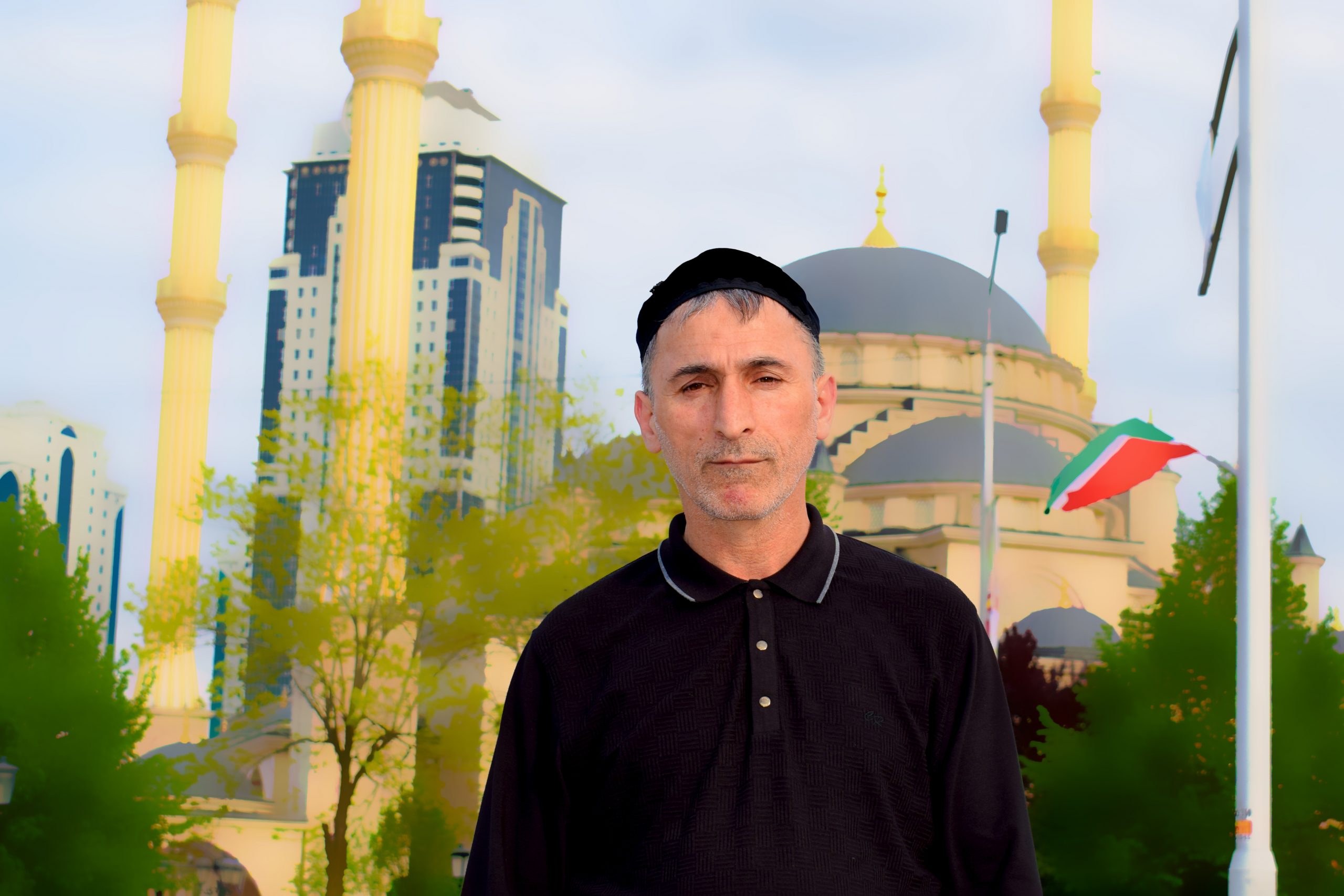
Said is the head of the Union of the Blind People in his hometown of Grozny. He is 56 now and lost his eyesight at the age of 19 due to a genetic disease.
He tells us of his memories of Ramadan.
The month of Ramadan is something that he’s loved since childhood. “I started to fast and pray when I was young even though it was Communist times then and people were persecuted for religious practices. Still, people fasted and celebrated Eid here.”
Said remembers his parents buying him new clothes for Eid and that his mother stayed up all night making food preparations. “I will never forget the beautiful smell of the food. On the morning of Eid my brothers and I would go out and collect sweets from relatives and neighbours. I am sure that children do it the same way today.”
For Said, Ramadan is an opportunity to better himself. “I try not to listen to frivolous talk and engage in productive things. I also try my best to support people in need.”
Day 5: Ramadan in Mali with Mamoudou
Maoudou doesn’t think that fasting this month is difficult, he enjoys the opportunity to clean up his diet. “Some may think Ramadan is a difficult month, but I believe it to be a blessed month which allows you to remain in good health and change your diet.”
He enjoys the change in cuisine that accompanies this month and eating local foods. “One meal before sunrise which is usually lafiri for those who can afford it or porridge and small things to eat for those with little means.”
For iftar he usually has local plant and mixed with milk and saly. “There is a local plant called bonee that we mix with milk and add some salt. Some prefer it with a little bit of pepper. It has a relaxing and healing effect when you eat it after fasting for the whole day. Again depending on your means you could have some dates and a refreshing hot cup of a plant called kinkeliba or some porridge.”
The benefits from Ramadan is not limited to the improving dietary health, Mamoudou reminds us that “fasting during this month helps to cleanse the soul and the body.”
Day 6: Ramadan in Gaza with Bodour
For the people of Gaza this will be one of the hardest months they have faced in a long time.
Bodour informs us that there are few opportunities to earn a living and support families. “Seldom are livelihoods secure and there are few good opportunities for survival. Thousands of graduates are without jobs and those who are working do not always receive their salaries.”
Due to the deteriorating humanitarian and economic situations in Gaza, several factories and markets have suspended their activities and laid off workers. Only four hours of electricity is available to our homes on a daily basis and this is not enough for a densely populated area like Gaza.
However, despite all of that, Ramadan is a month that brings joy to people. “Ramadan always brings a great hope to my people. It is a month when people all over the world look for us and help alleviate our suffering.”
Bodour increases her voluntary activities and aims to reduce some of the hardships that people are facing. A youth group that she has organised visit a children’s hospital and help to cheer them up. “We make Ramadan lanterns for them. This month makes me feel closer to Allah.”
Day 7: Ramadan in Bangladesh with Biwi Hawa
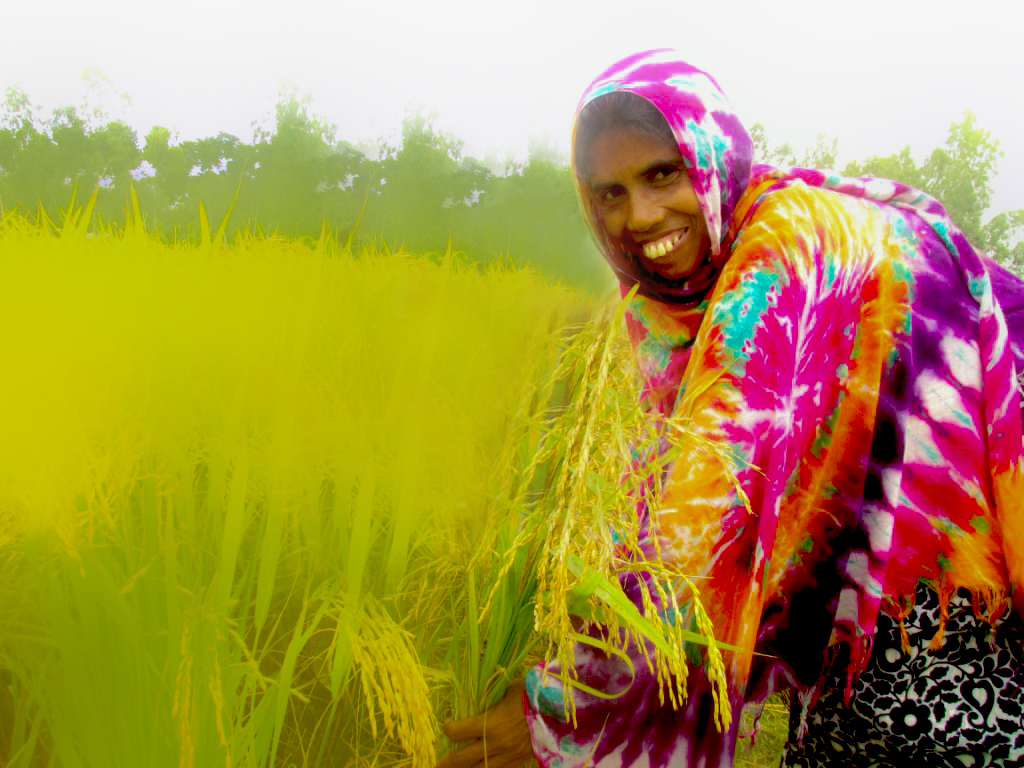
Biwi Hawa is widowed with two children. She works a labourer and is the only earner in her family.
Ramadan is usually a hard month for her and her family as they are very poor. “We are not getting enough work, our income is decreasing and I cannot always buy sufficient food for the month.”
Having sufficient food for her family in the month of Ramadan and throughout the rest of the year is like a dream for her.
Ramadan is treated like a festival in Bangladesh, the whole community gets involved. “People are excited to see the moon and the men all go for taraweeh prayers in the mosque. Family bonds increase as people treat each other with more tolerance, affection and love.”
As per Islamic custom people donate their Zakat this month and people tend to donate more. Biwi Hawa receives some Zakat money in order to buy food and new clothes for her children. It is not something she wants to do, but she has no other alternatives.
Biwi hopes that the food assistance from Islamic Relief will help her through this month.
Day 8: Ramadan in India with Farhat
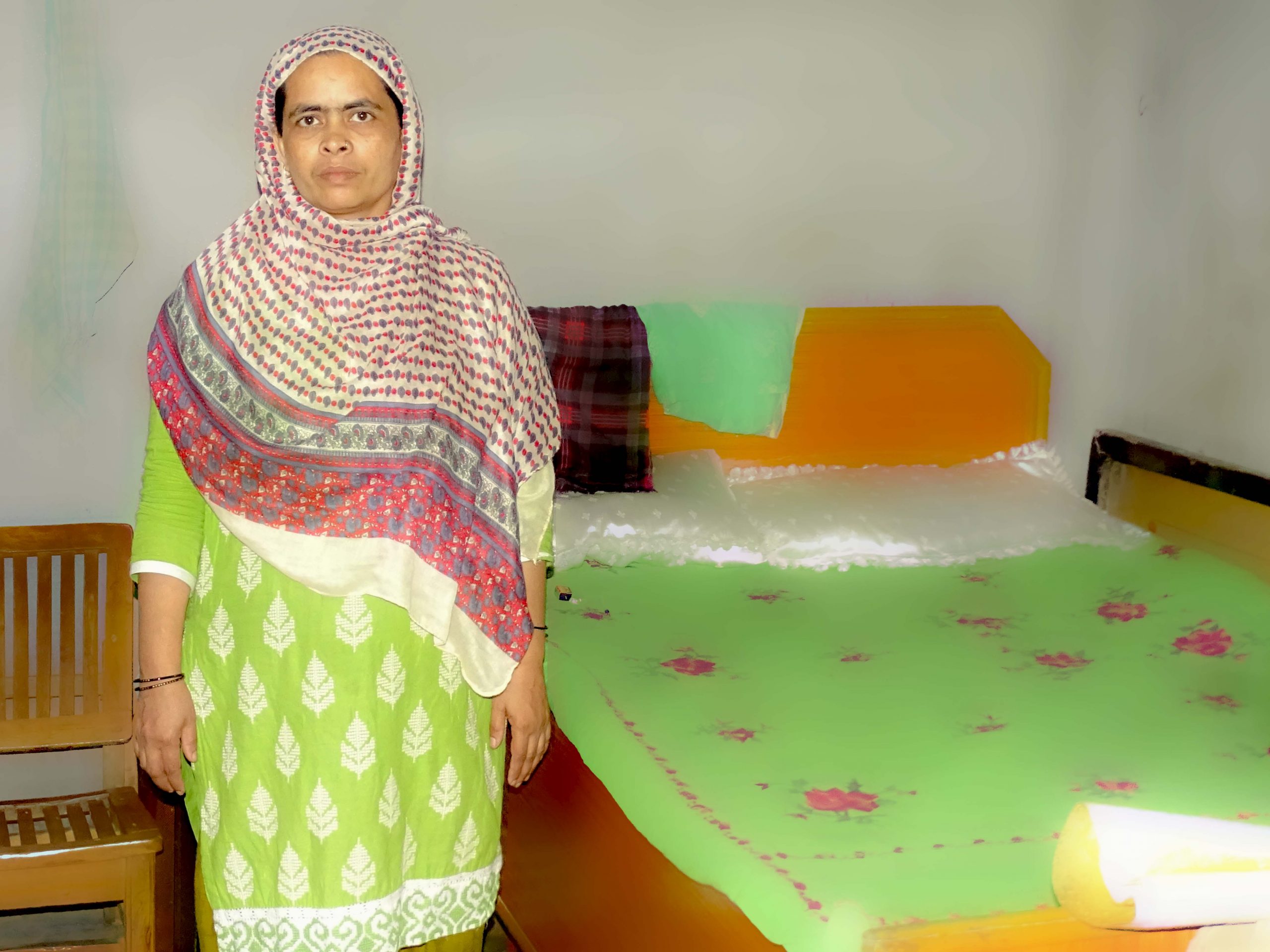
Farhat lives in New Delhi with her husband and three children. For her Ramadan is a month which centres on prayers and family.
One of the local customs that people engage is inviting each other over for iftar on a rotational basis. One day they will visit a family member of friend and on another day they will invite them over to share a range of foods.
Farhat makes a variety of foods for her family to eat at iftar and suhoor. “For iftar we tend to eat seasonal fruits, chickpeas, pakoras, at the start. After that we eat a cooked dish like rich, lentils, meat, or vegetables.”
When she was younger she lived in another province and recalls how the customs and celebrations were similar. “There were celebrations with relatives, friends, people prayed in congregation and would invite each other over for food.”
One of the immediate benefits is that her husband and all the men who work always return home for iftar. “Men who usually arrive home late from work always make an effort to be home for iftar time so then can break their fast with their families.”
Day 9: Ramadan in Kenya with Kuresha
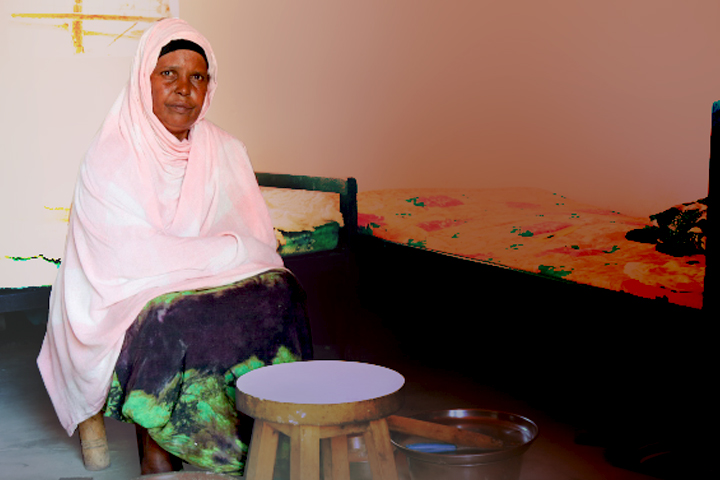
Kuresha is 40 years old, she is a widow living with her three orphaned children in Garissa County, Kenya.
The death of her husband weighs heavily on Kuresha. “Life is no longer the same without him, especially at this time of Ramadan.” She fondly remembers Ramadan with him as full of faith, joy and celebration.
This Ramadan has been especially hard. The recent flash floods in Garissa destroyed her house and property. With no gainful employment they rely on Allah during the times of fasting, not sure where their next meal will come from.
Despite the immediate difficulties the family faces she is eager to gain the most from this month. “Ramadan has its own blessings. This Holy month of Ramadan is special to us as Muslims. We have been waiting eagerly to fast, pray and reflect on the goodness of Allah.”
The family’s generosity is reflected the extra efforts she is making. She is preparing extra food from the little she has, in order to share with unannounced relatives, friends, neighbours or strangers who might join them during iftar. Everyone is invited to share in the little that she has for her family.
Though she finds herself in a dire state she still thinks and prays for others: “I pray for all my Muslim brothers and sisters fasting during this Holy month of Ramadan. Please ask Allah to give you the strength to complete the 30 days. It is a short time full of Allah’s rewards.”
Her family was among those who benefited from a Ramadan food pack provided by Islamic Relief Kenya.
Day 10: Ramadan in Turkey with Serdar
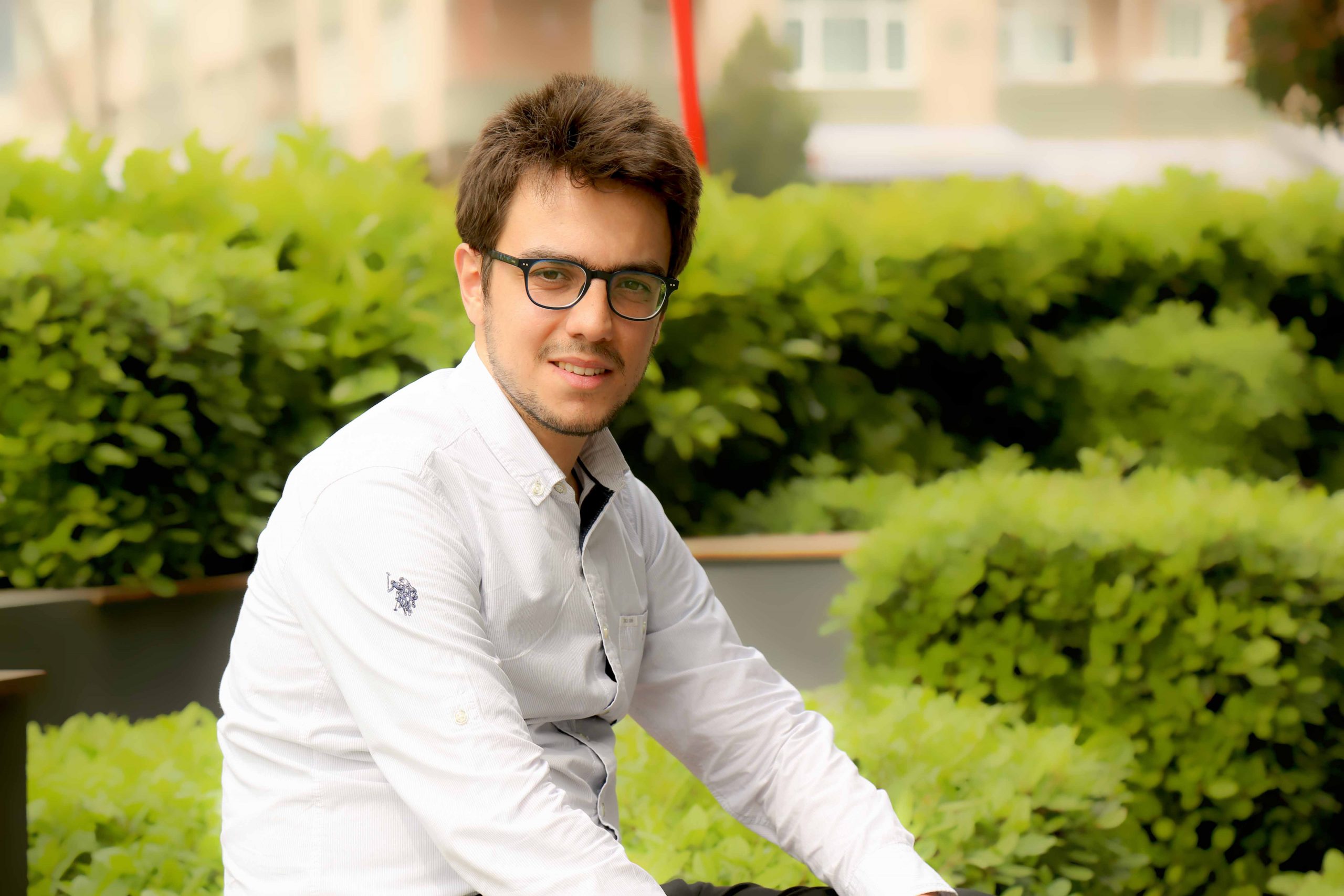
Istanbul is city layered with thousands of years of history. It has some of the most magnificent mosques in the world. Serdar observes that some of the large historical mosques are adorned with messages for people to read: “they are called mahyas, which are illuminated message hung between minarets.”
Serdar notes that Ramadan brings about: “a unique atmosphere in Istanbul. People seek to help out those in need, invite each other to iftar dinners and gather in mosques for taraweeh prayers.”
Turkish cuisine is something that that Serdar enjoys and iftar and suhoor. “One thing seen as a necessity in Ramadan is pide. This is the Turkish version of a pitta bread, before iftar we often wait in long queues in front of bakeries so we can bring some pides home.”
Like lots of other Muslims he breaks his fast with dates and water, but after that he usually has a bowl of soup like most other Turkish people. For dessert he usually has güllaç, which is a dessert made with milk, pomegranate and a special kind of pastry.
There are some local customs specific to Ramadan, some still exist today and others are no longer practised. Serdar mentioned that: “in Ottoman times cannons were used in order to announce the time for iftar, but this is no longer practised today.” One tradition that still exists are neighbourhood drummers who wake people up for suhoor: “they get everyone up at the right time, but sometimes it is difficult to hear them from high-rise buildings.”
Day 11: Ramadan in Mali with Fatou
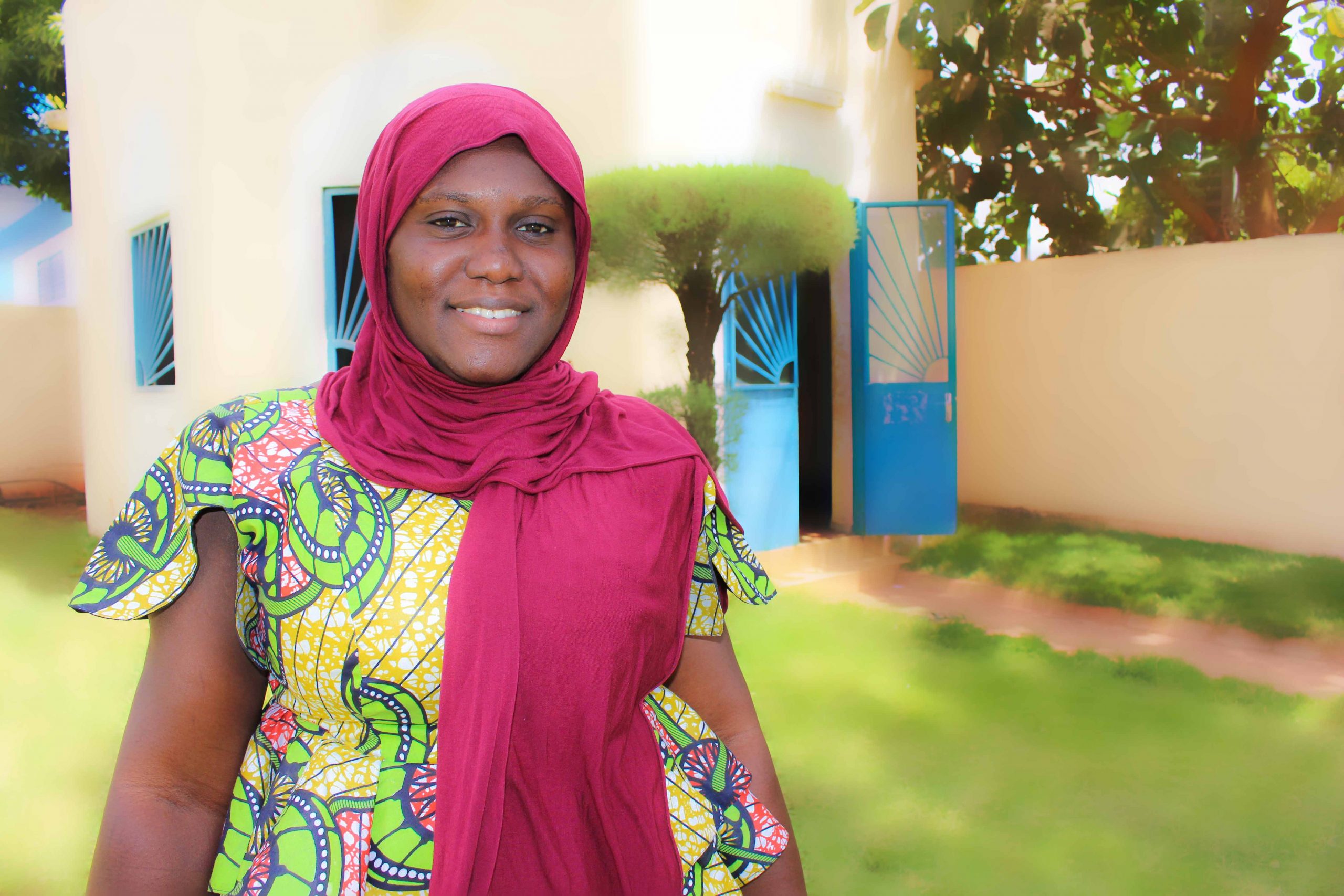
Ramadan experiences vary for people all over the world. What Fatou likes most about this month is: “the fact that people thrive to become better in their behaviour.”
One thing she likes to do, motivated by feeling of Ramadan, is change her dress sense. She says: “I myself have a special long dress with hijab that I wear throughout this blessed month.” Though Ramadan was difficult for her last year, she was happy to complete a whole month of fasting.
Fatou also noticed a change in the behavior of non-Muslim people who live nearby. “They do things differently,” she said. She mentioned that people eat in a more discreet manner out of respect to their Muslim neighbors. “Where I live you would not see people eating or smoking in public out of respect for this special month.”
In this month she observed that women start wearing long dresses and men rush to prayer on time.
The changes in beahviour are very welcome, “it would really be wonderful if people could keep behaving the way they do during Ramadan throughout the whole year.”
Day 12: Ramadan in Syria with Amer
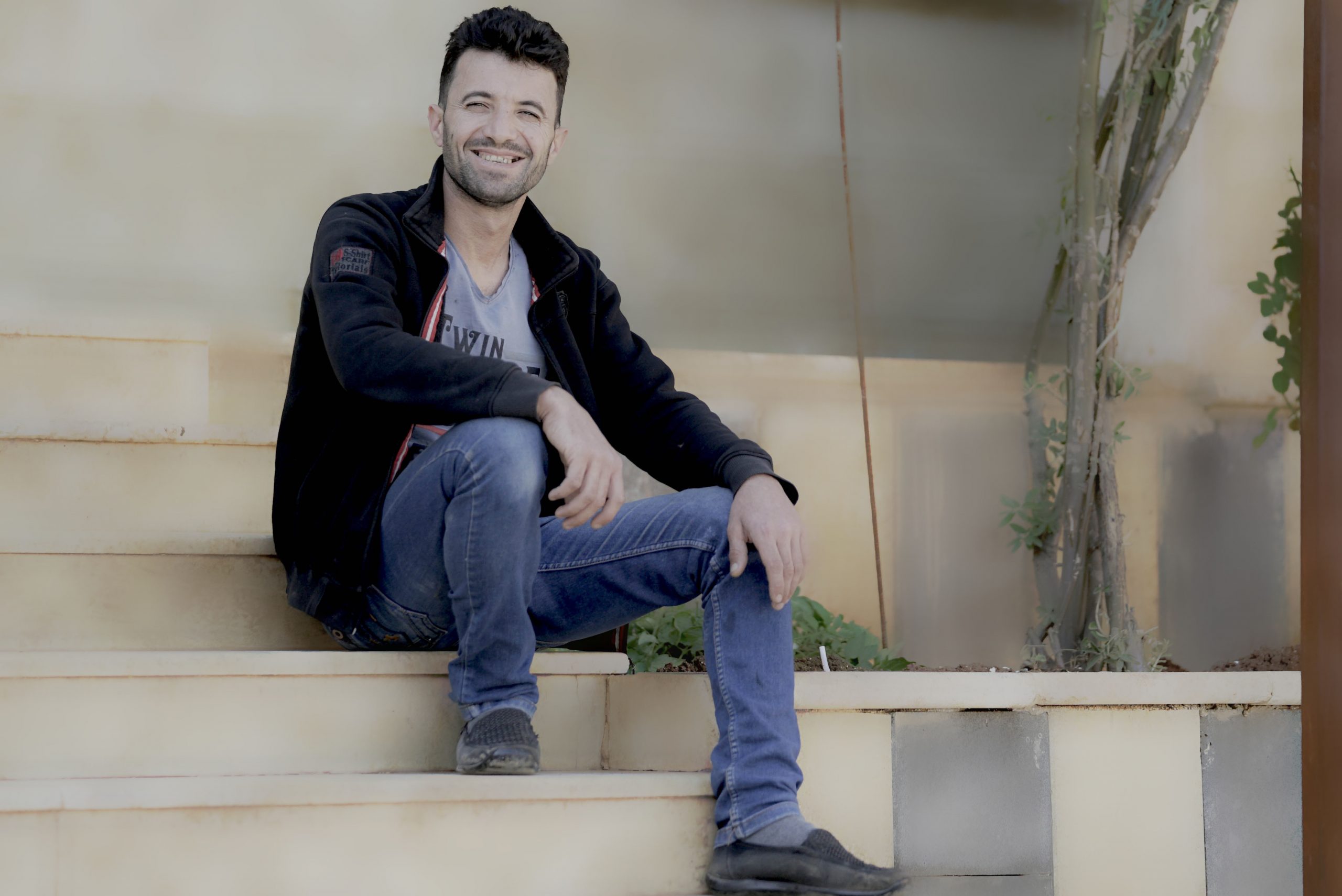
Amer is celebrating Ramadan away from his house, friends, and family. He’s been displaced from his home in Damascus and found refuge in north Syria.
He’s spent six years away from his home, but he has tried to maintain some of the traditions and values he grew up with. He recollects: “we grew up on the beautiful values of serving the poor and needy and these are embodied in the holy month of Ramadan.”
Amer recalls how fasting was for him before the conflict began in Syria: “I feel like we lived the most beautiful moments of our lives in this month. People would sit around one table and wait to hear the adhaan so they could break their fasts together with dates.” He remembers that: “this was always a month of tolerance in Syria, people from different religions would sit and eat together.”
One of the delicious foods he used to enjoy for iftar is called ouzi, it’s consists of dough flakes stuffed with rice, meat, peas, and pine nuts. Amer recollects that this used to be: “a very delicious iftar.”
After seven years of war the situation for most Syrians is a difficult one, but Amer notes that people are trying to preserve these good habits and traditions.
Day 13: Ramadan in Afghanistan with Sayed
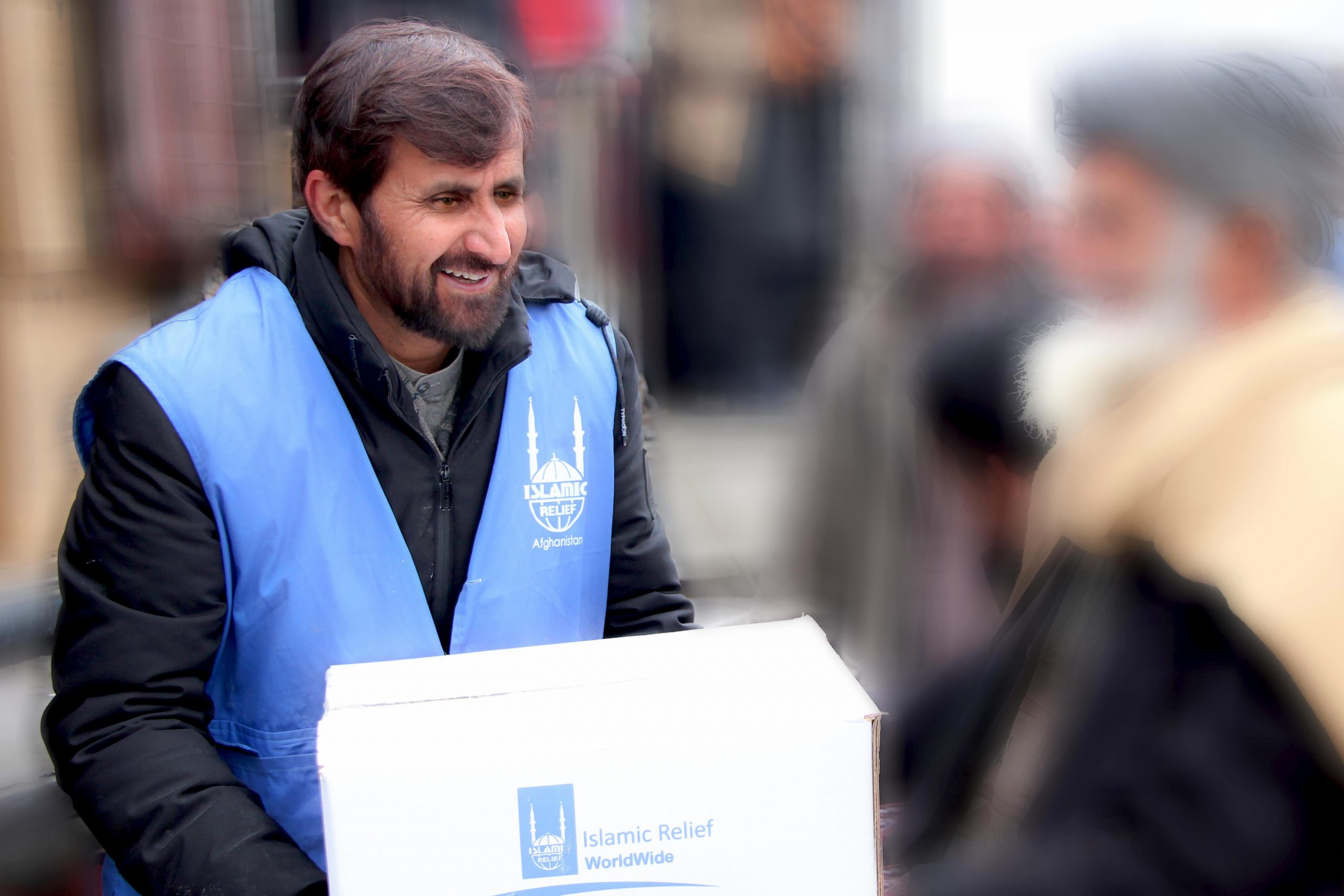
Sayed works for Islamic Relief and has seen how much people have been struggling throughout Afghanistan.
People have been facing conflict and scarcity for many decades now, in some places people are struggling to find enough food to eat: “we came across some poor people in Nangarhar province. Some people were fasting without food and others were not able to fast.” Islamic Relief provided families with special Ramadan packages so they had some sustenance for the rest of the month.
Sayed is committed to doing more good work this month. He is personally committed to helping some extended family. “I will do my duty by helping a family of my relatives by providing them with some food items like fresh fruit before, and during, Ramadan.”
Sayed is well aware that there are many benefits to be gained this month: “there are many lessons we can learn, one is that that we feel how the poor feel as they without enough food and water on many days, another one is that there are health benefits from reducing how much we eat.”
Day 14: Ramadan in Somalia with Maryama
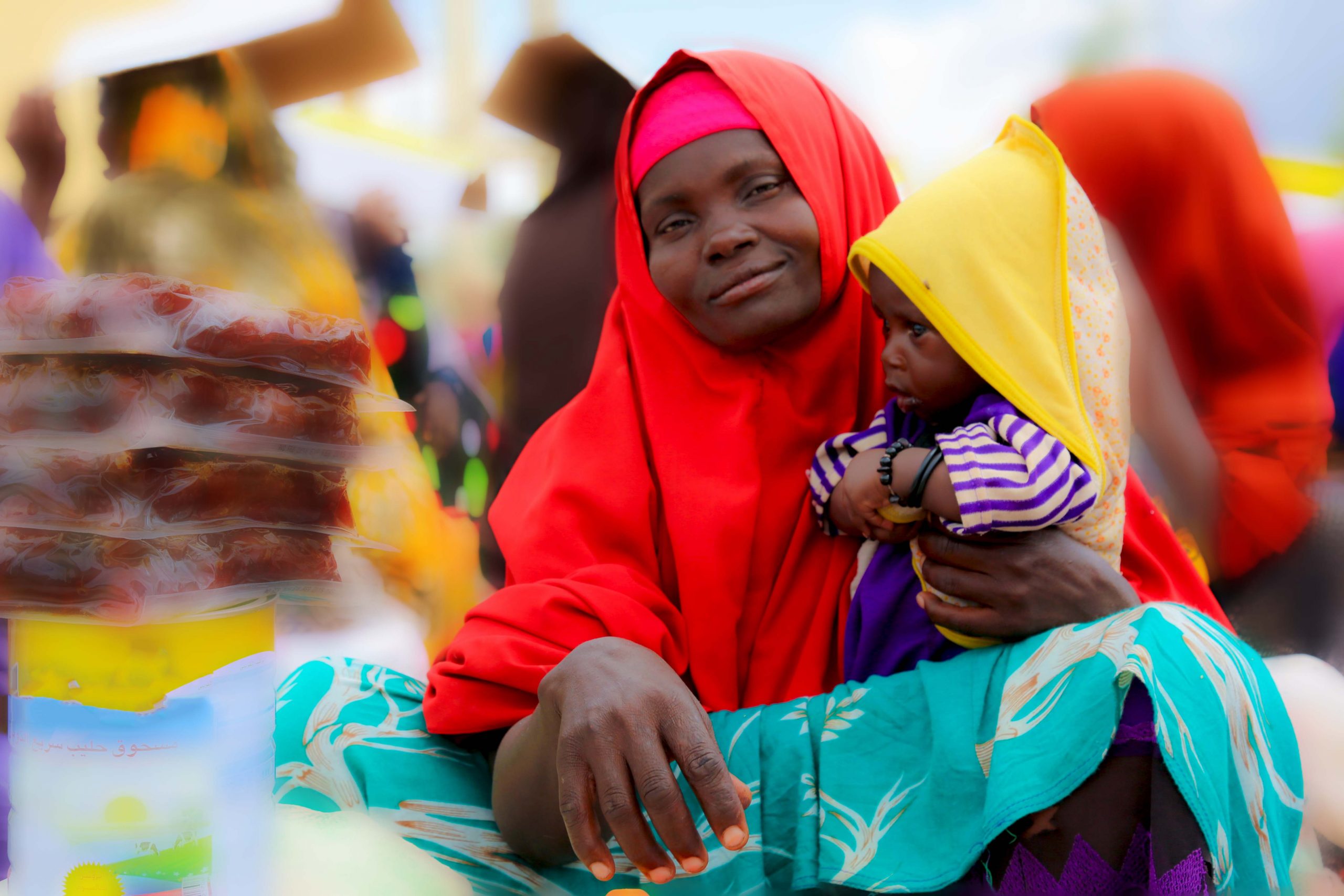
Maryama is 32 years old, she is a mother of two and lives in a camp on the outskirts of Beldweyne, Somalia.
Life for Maryam changed immensely when her husband died and nothing has been the same for here since. “He was the breadwinner of the family, he died eight months ago while I was pregnant with this baby girl.”
The recent flooding in East Africa has forced her to flee and seek shelter with her two children. The flooding destroyed her home and she now relies on extended family for help, sometime they have been able to provide her with food.
Despite the difficulties she faces, she is keen on fasting the entirety of this holy month. “Ramadan is full of compassion and mercy. I want to make the most of the opportunity and complete all the fasts.”
Maryama was provided with Ramadan food packs from Islamic Relief Somalia which were distributed during the emergency response to the flash floods.
Day 15: Ramadan in Lebanon with Bashir
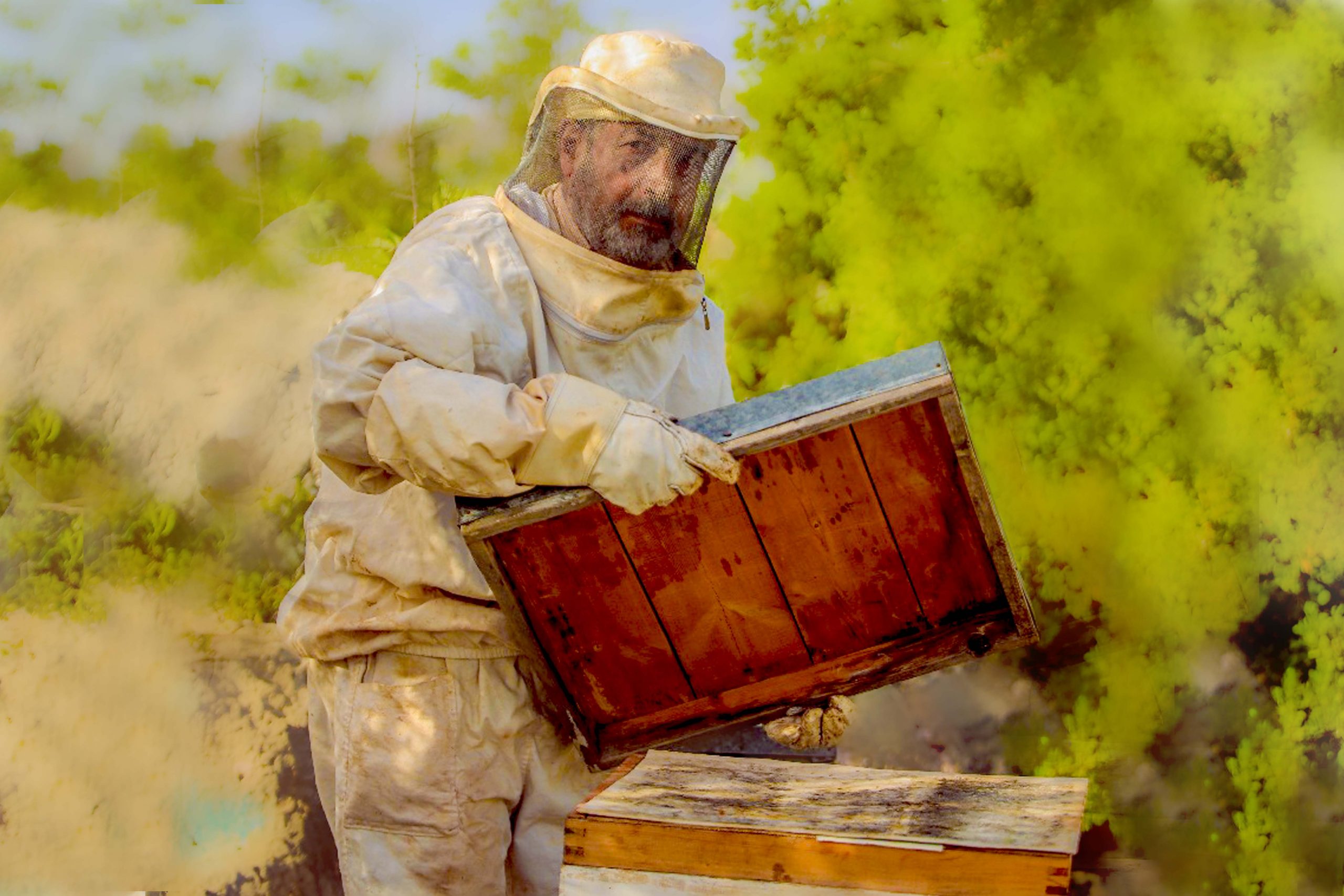
Bashir is 60 years old, he works on a bee farm and what he loves most about Ramadan is that his whole family gathers together and there are few other distractions. “Ramadan is not like any other month, it has a different feel. Everyone is happy, tired and thirsty, but the joy of the whole family gathering at the dining table compensates the day’s fatigue.”
Bashir acknowledges that the atmosphere in his society is different during Ramadan, he also notes that his working patterns change. “I work in bee farm, and in Ramadan especially I head to work late afternoon to avoid the harsh sun, the weather is cooler then. The bees are the source of my livelihood I can’t go for days without checking on them.”
There are obvious changes that he notices during this holy month. “There are many practical and spiritual changes that I feel. Also, in my community you can see Ramadan everywhere. There streets are decorated, juice stops stay open till late, people go to taraweeh prayers, and neighbours share food with each other.”
The buzz of Ramadan is something that Bashir relishes. Despite some of the hardships he faces while working and fasting in the summer months, he feels that this month is full of blessings.
Day 16: Ramadan in Chad with Amne
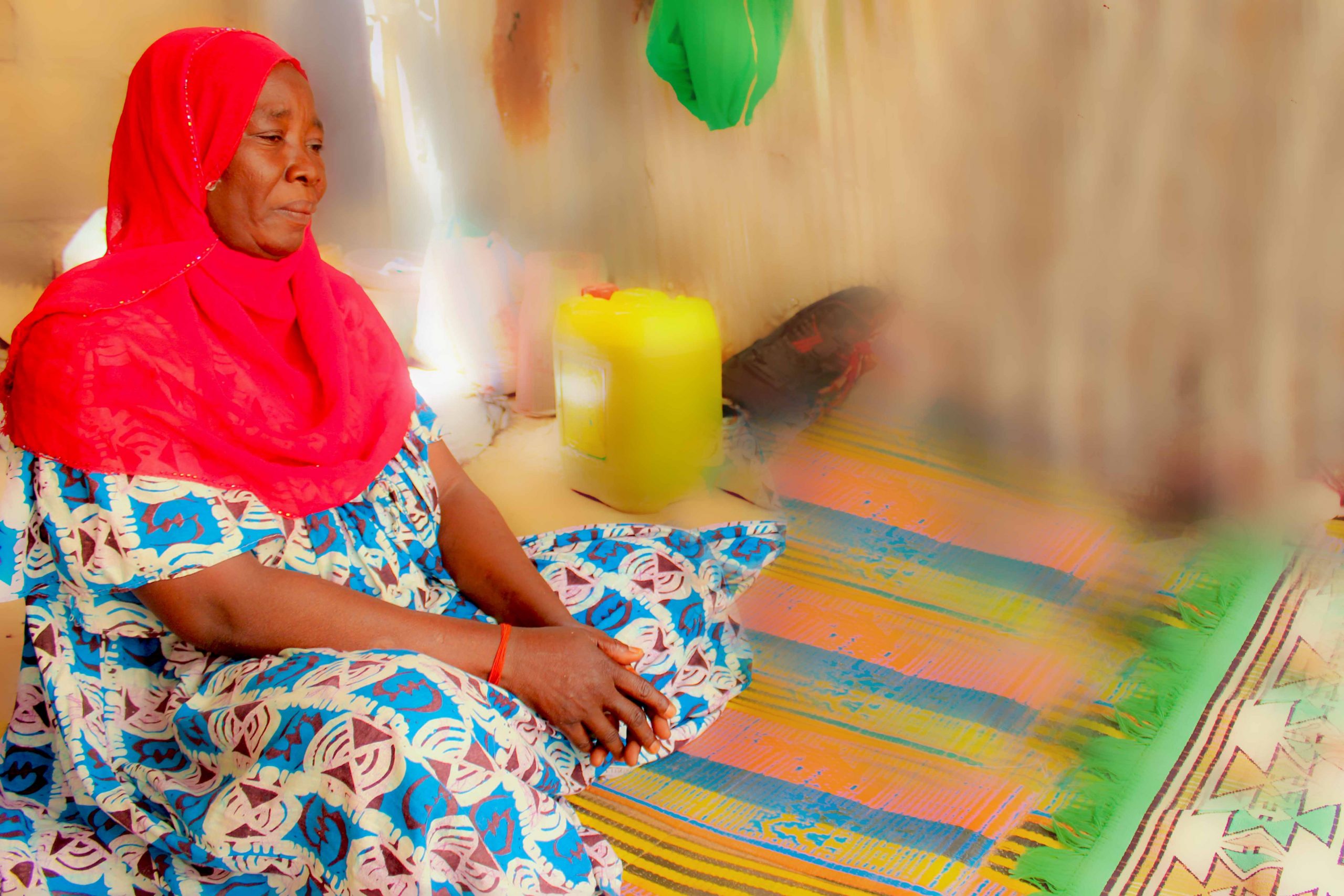
Ramadan is a month that is special to all Muslims, for Amne this a month of blessings. “It’s a month in which family and friends treat each other with compassion and forgiveness.”
This month also has a special feel for her because people from all backgrounds come together to pray and share the experience of fasting.
One of her favourite memories from a previous Ramadan was receiving a food pack from Islamic Relief: “this allows needy people to fast with everyone else. It allowed us to eat and fast with everyone else.”
Amne’s aims for this month are to improve herself spiritually: “I will continue learning the Quran and doing my prayers. I hope that Allah makes this a year full of happiness, joy and blessings for us all.”
Day 17: Ramadan in Gaza with Haya
“After breaking our fast we go out and play with toys.”
Haya is eleven years old and lives in the Jabalia refugee camp. She finds fasting to be a beautiful experience and is always happy during iftar. “It’s a blessed month and our good deeds increase when we fast.”
She looks forward to Ramadan every year: “I impatiently wait for Ramadan, I love it when my family and relatives get together for breakfasts.”
After iftar she enjoys spending time with her friends. “After breaking our fast, we go out and play with toys. When we have some free times at night, we make and lanterns with foam. Also, we use cans and cover them to make lovely things.”
Day 18: Ramadan in Malawi with Jafali
Jafali is 73 years old and he is the muezzin (caller to prayer) at his local mosque. The weather in Malawi this year is very hot, but this has not deterred Jafali from fasting. Ramadan is a time of year that he always looks forward to.
For him Ramadan can be summed up in three words: “Peace, love, and harmony.” People praying together makes “people care for one another.”
His hope for this holy month is that people stay good to one another just as they do during the entirety of the month. “May the lover between families, fellow brothers and sisters remain strong, and may they remain strong in their faith and good deeds.”
Day 19: Ramadan in Kenya with Abdirahman
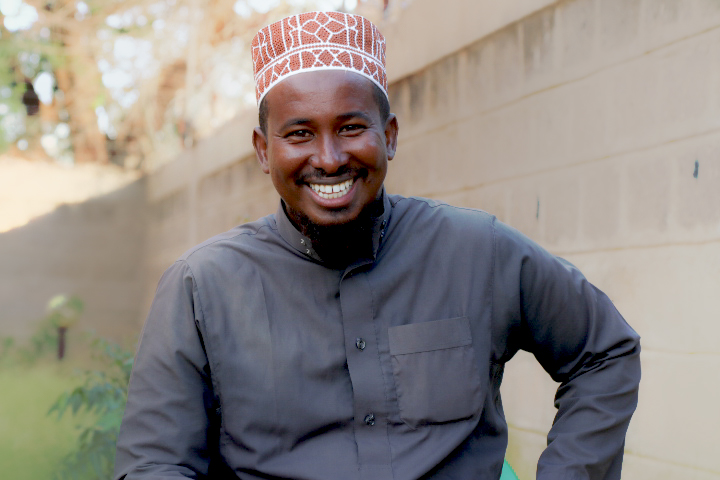
Abdirahman volunteered to support Islamic Relief Kenya in distributing Ramadan food packs in Garissa this year. He has four children and one wife who live with his mother in Bulla, north-eastern Kenya.
Abdirahman fondly remembers Ramadan during his childhood back in Bulla. He appreciates lessons that he gained from one of the Sheikhs on the importance of Ramadan. “Ramadan is the month that the Quran was first revealed to the Prophet Muhammad.”
He is very grateful to have a whole month dedicated to fasting and prayer as this will help him develop into a better person. He recites a verse from the Qur’an (Surah Al-Baqarah: 183): ‘”O, you who have believed, decreed upon you is fasting as it was decreed upon those before you, so that you may become righteous.”
What he loves most about this holy month is that it: “strengthens his faith and I feels closer to Allah.” He is continuously develeoping his self-control by fasting during the day.
Day 20: Ramadan in Jordan with Hamzah
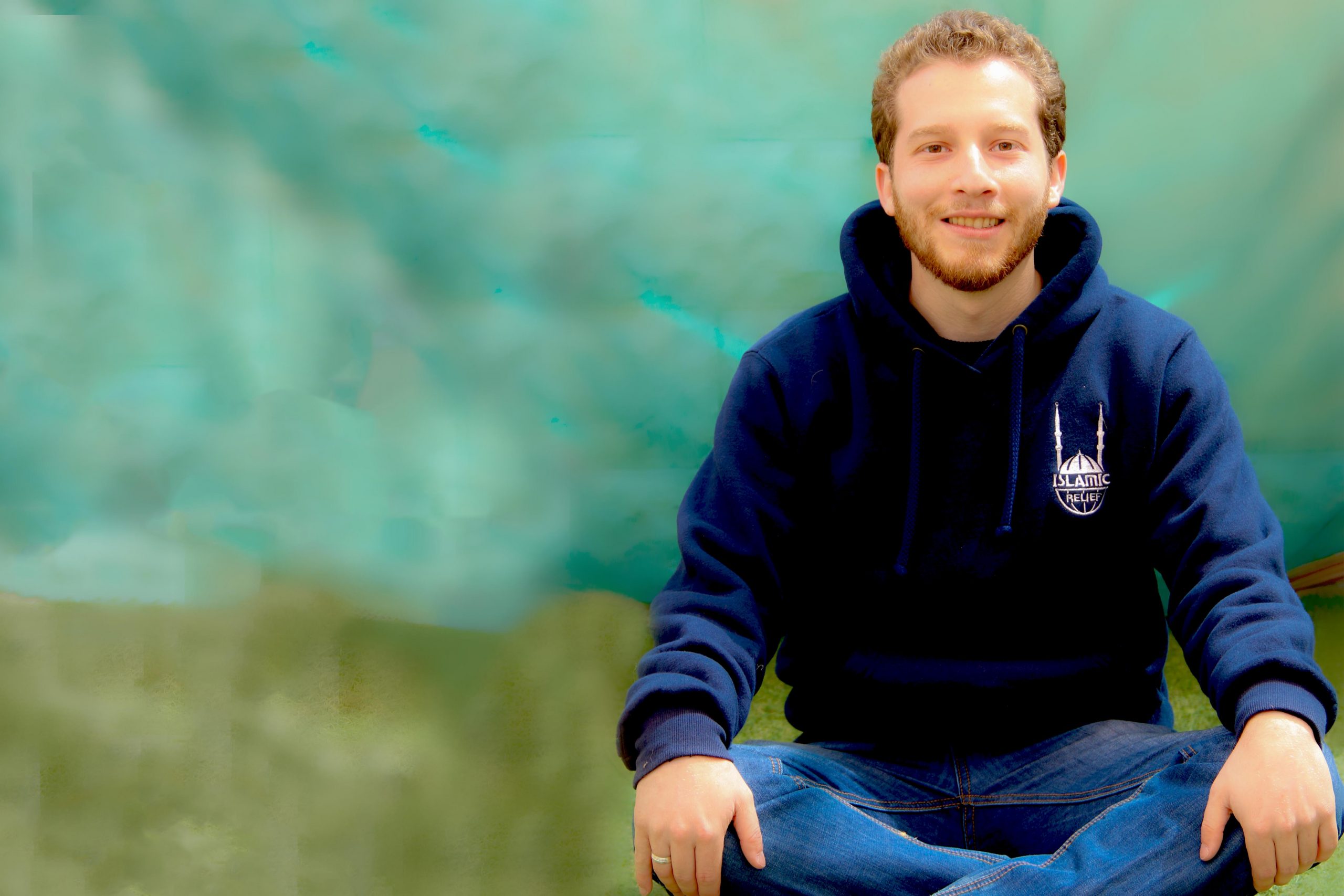
For Hamzah, Ramadan us all about reflection and self-improvement. It is the month where you can overcome your basic needs and strengthen your will. The holy month also acts as a personal marker and offers a “chance to review the past year, the good and the bad, and an opportunity to change.”
Self-improvement is made easier during this month as distractions reduce while people abstain from eating and drinking during daylight hours. Hamzah enjoys the change in food intake and what that further entails: “it’s an opportunity to break your routine and improve yourself.”
This Ramadan he intends to engage in interesting and new activities with his family. “I would like to read some stories with my kids in order to make Ramadan more special and fun for them.”
Day 21: Ramadan in Afghanistan with Mohammad
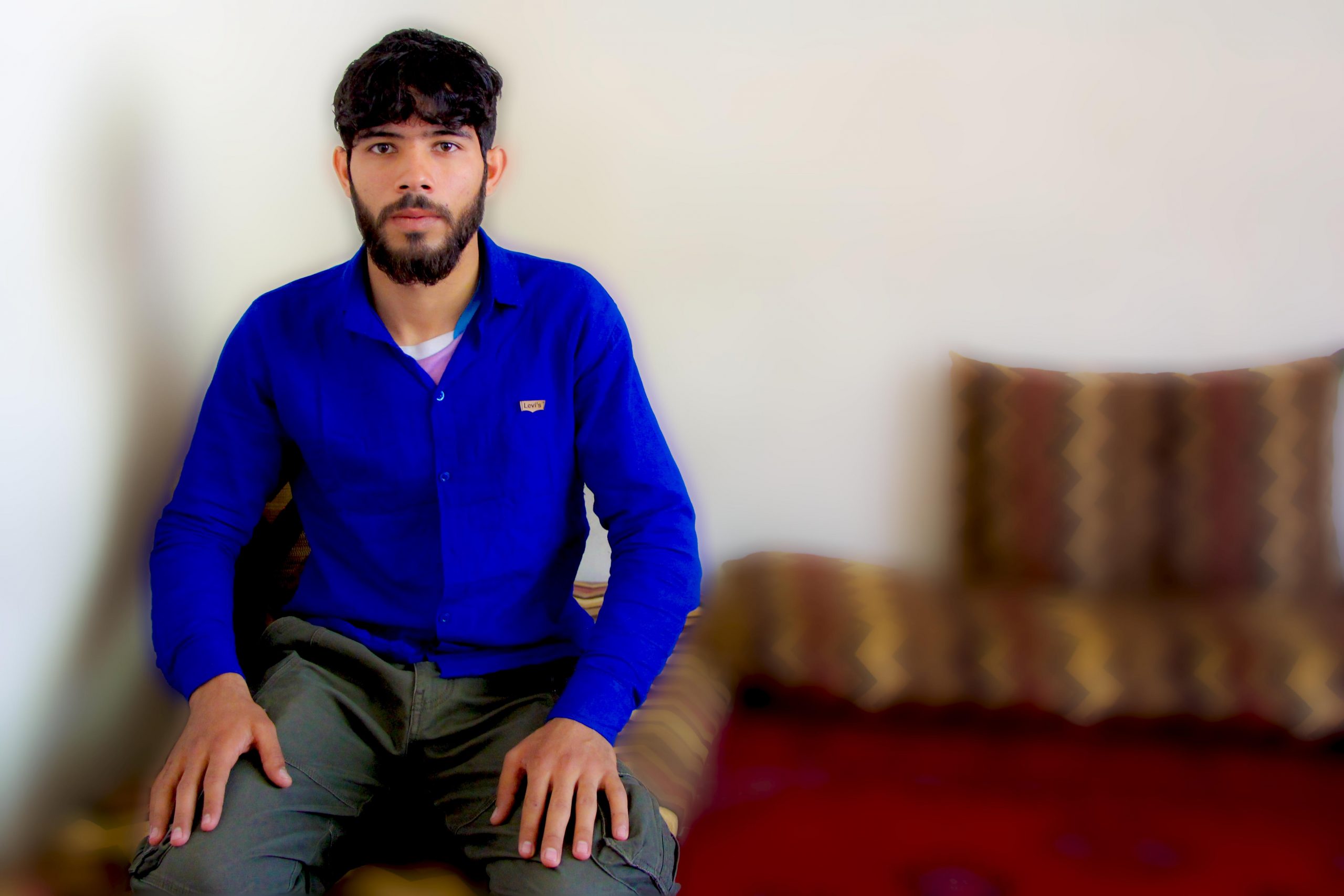
Fasting during the month of Ramadan is one of the pillars of Islam. Muslims all over the world fast the entire month and strive to do as many good deeds as possible. The last ten days are especially important and Muslims attempt to pray more, give more charity and finish the month as best as they can.
Mohammad always fasts during the holy month and recognises that it’s a month to do so much good. “It’s an obligation from God. Ramadan is full of blessings, it’s the month of brotherhood, and it’s a month for helping the poor.”
Last Ramadan he was wondering how he and his family would survive as they had no food, but then they received food packs for Islamic Relief. This Ramadan his aim to spend as much time as he can with his family and provide for them in the best way he can.
Day 22: Ramadan in Lebanon with Mohammed
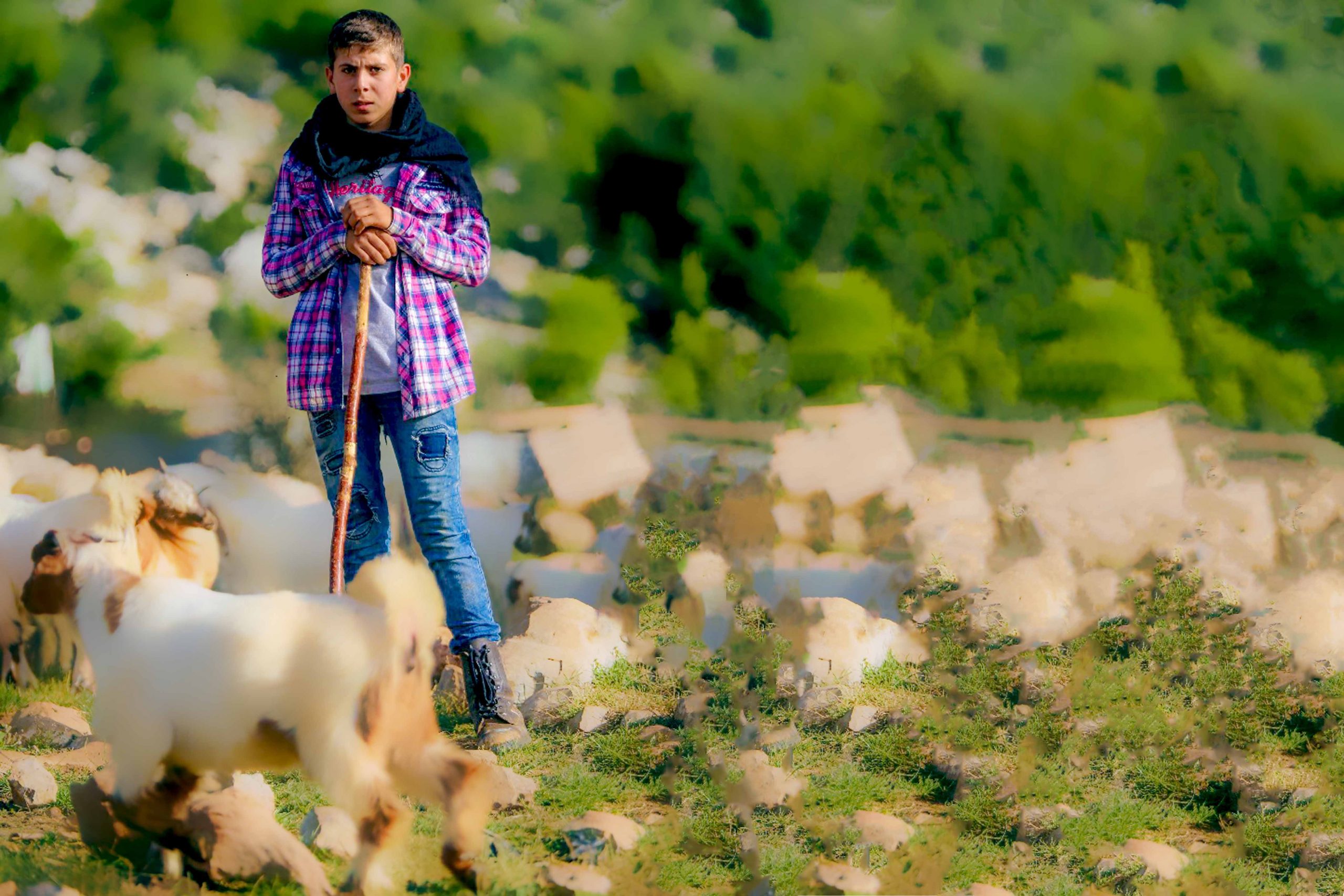
Mohammed is a 13 year old student who also works as a shepherd during school holidays. His father is quite elderly, so Mohammed helps out as much as he can as “it’s very hot, and climbing mountains and valleys for a living is very difficult.”
He started fasting four years ago and he enjoys working with his father as this helps him pass the time. He struggled to fast in previous years but he feels stronger now: “I use to struggle a lot with the thirst, because Ramadan is in the summer. This year my ability to fast has increased.”
Working as a shepherd during the month of Ramadan can be tiring, but he enjoys being outside and amongst nature. “The views from our mountainous area are very beautiful. The most beautiful daily sight from me whilst sitting under the tree, are of the mountains and goats. I realise how nature is so amazing.”
Day 23: Ramadan in Malawi with Hajirah
“This is the month we abandon bad deeds.”
Hajirah is 22 and works as a receptionist in Blantyre, Malawi. For Hajirah this holy month is all about prayer and doing good deeds. ”Not only are we suuposed to abandon food, we are trying to leave bad habits and bad deeds indefinitely.”
Her favourite memory of Ramadan was one year where she managed to worship all the odd-number days of the last ten nights in search of laylatul qadr.
Her aim for the end of the month is to continually improve herself, she says: ”I want to worship Allah more and become more attentive to my prayers this month.”
Day 24: Ramadan in England with Mariam
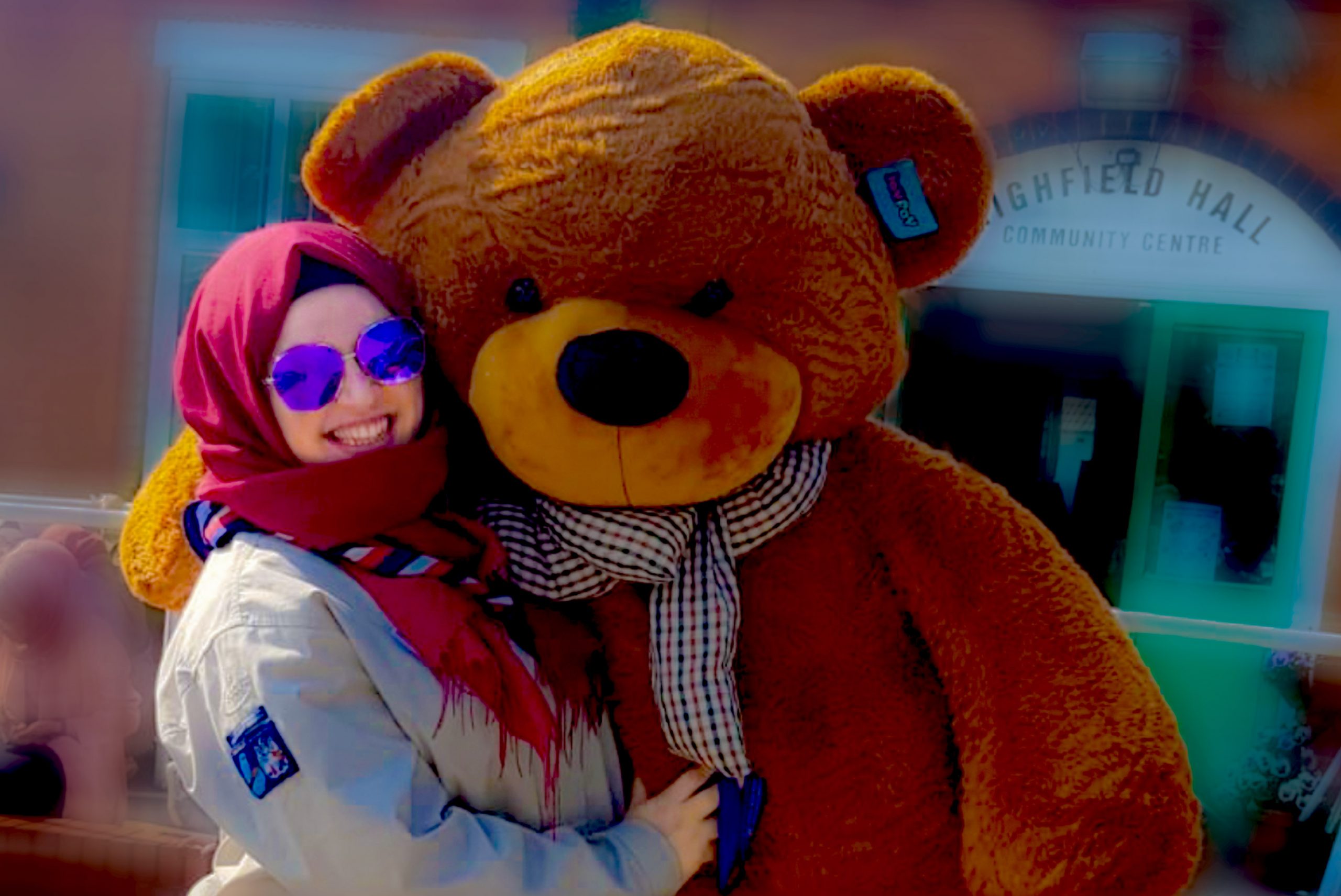
Mariam works in Islamic Relief Worldwide but is also a dedicated Scout Leader.
The fasting days can be very long in Ramadan but Mariam feels blessed to be part of the Islamic Relief family and helping the international community during the day, and be at the service of her local community in her spare time. For her, “Ramadan is an opportunity to be at the service of others and gather as many rewards as possible.”
As a Scout, Mariam loves the community iftar opportunities Ramadan brings. To share food, fun and laughter with all members of the public, whether Muslim or of other faiths, and seeing the younger generations learning about the beauties and blessings of Ramadan.
She loves experiencing iftars and taraweeh prayers in the outdoors and being able to admire Allah’s creation in all its glory, and knowing that around the world people are coming together under the one sky to humbly worship their Creator.
Day 25: Ramadan in Jordan with Adel
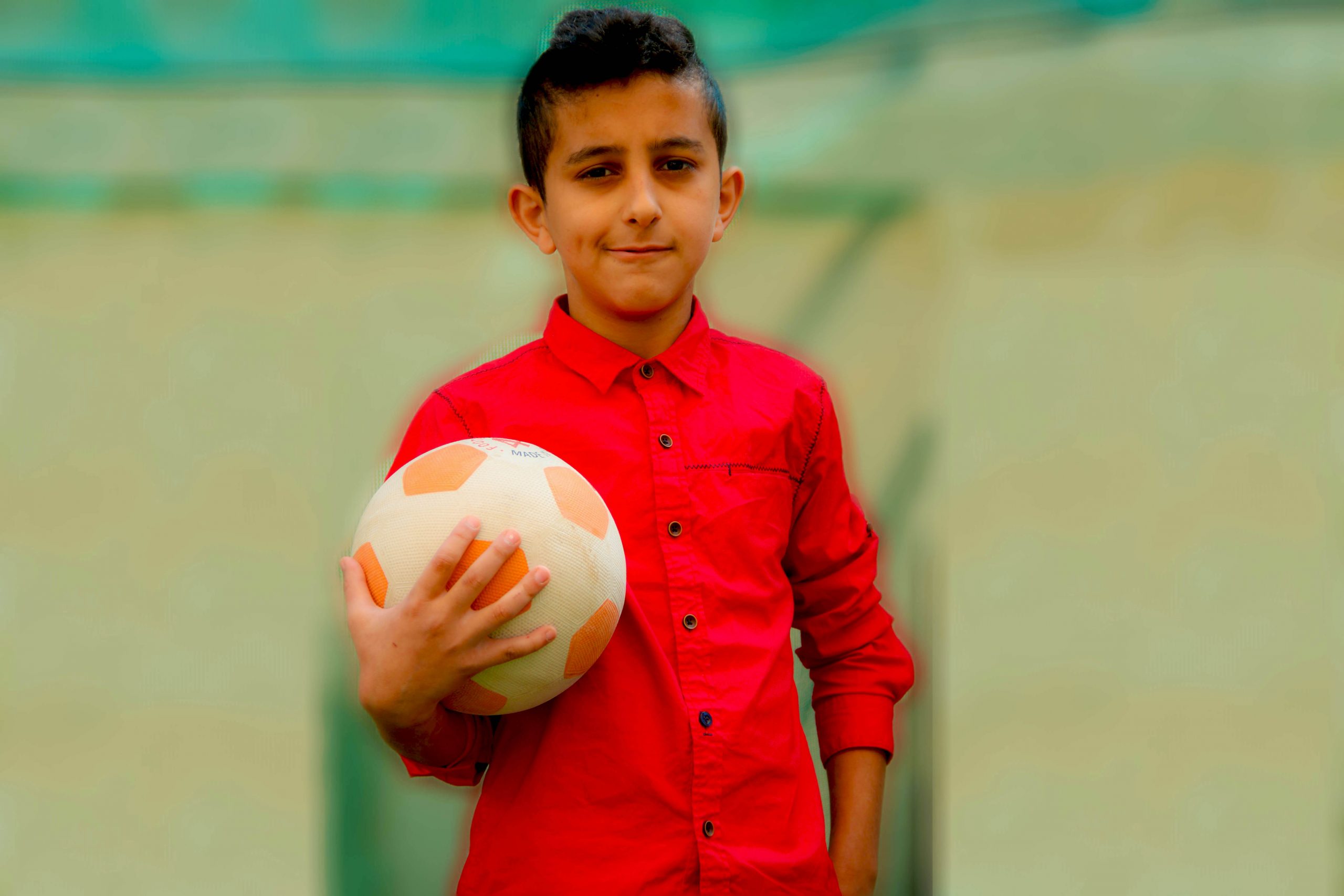
Adel is 11 years old and he has been doing his utmost to make the most of this Ramadan. In a previous Ramadan he had broken once broken a fast by mistake and now he’s determined never to repeat that mistake. “One day in Ramadan I broke my fast by mistake, and now when I see someone breaking his fast I always remember what I did.”
He remembers that when it was his birthday in Ramadan a few years ago, he fasted and then celebrated his birthday after iftar. “We ate our iftar then we had some cake!”
This year he is doing his best to keep every fast and do as many good deeds as possible. “This year I will not break my fast during the whole month!”
Day 26: Ramadan in Yemen with Sumaia
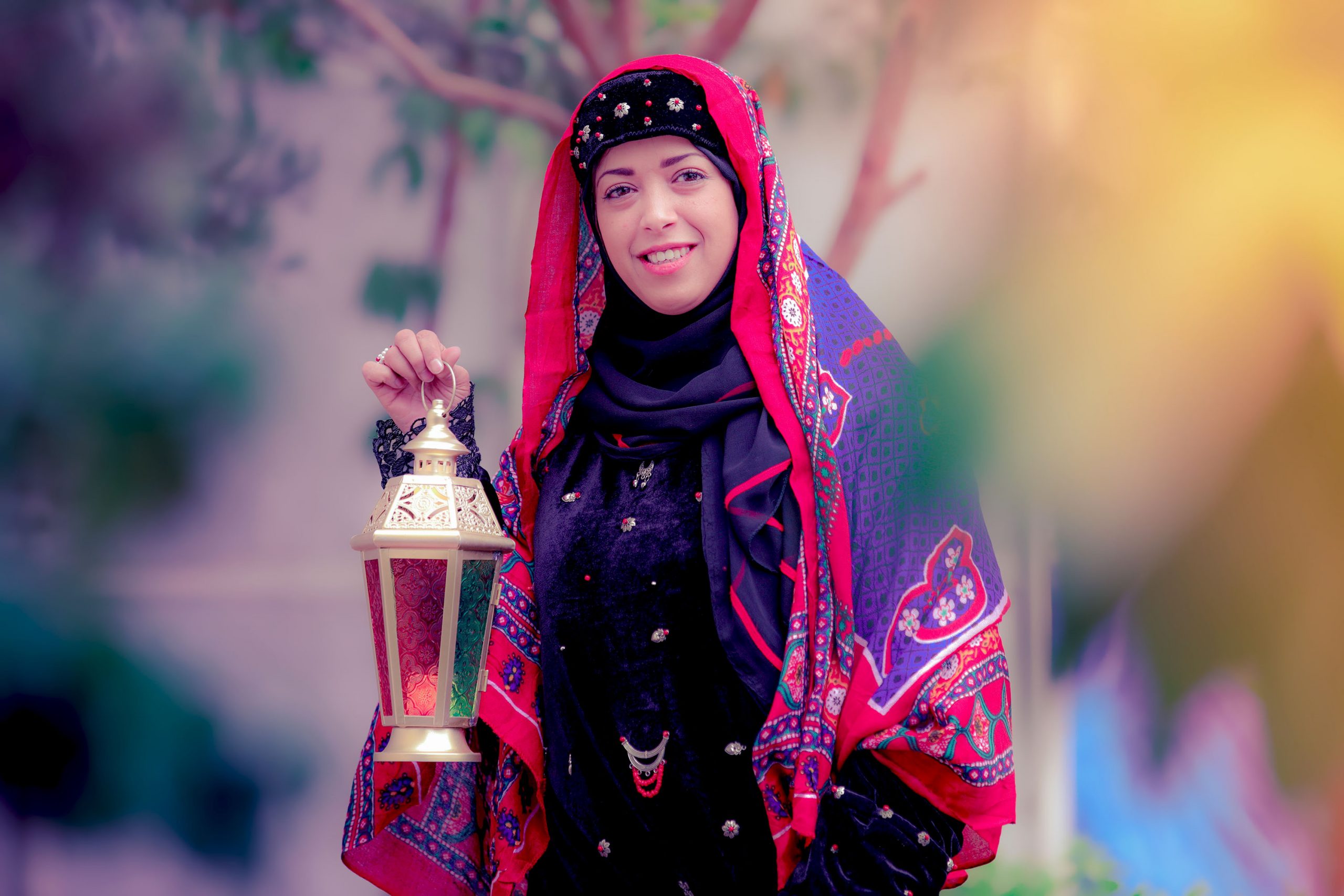
The crisis in Yemen has been going on for three years now. Many people have lost their lives and millions of people are suffering.
Despite the sorrow and anguish, people like Sumaia are doing their best to make Ramadan as normal as possible. Sumaia and her family like to gather together and celebrate the month as they did in the past. “From the first day until the last day of Ramadan, all the family gather and we enjoy eating different Yemeni dishes. We eat shafoot, sambosa, and other Yemeni dishes which my mother and I make with love.”
In previous years she used to visit her grandmother after iftar and stay at her house for hours. “We enjoyed chatting, joking, and laughing together. My father used to tell nice stories about the past and always talked about sympathy and compassion in Ramadan and how our religion encourages us to help our neighbors and poor people. He kept advising us to smile to all people, including poor as a simple help for them.”
The last few years have brought about a lot of change for her, her father passed away, and many people have lost their loved ones since the onset of the conflict. “This war is killing everything beautiful in ourselves, it is killing us, and still has no end on sight. My country is destroyed, it feels like there is no safe place anymore.”
Day 27: Ramadan in England with Mayumi
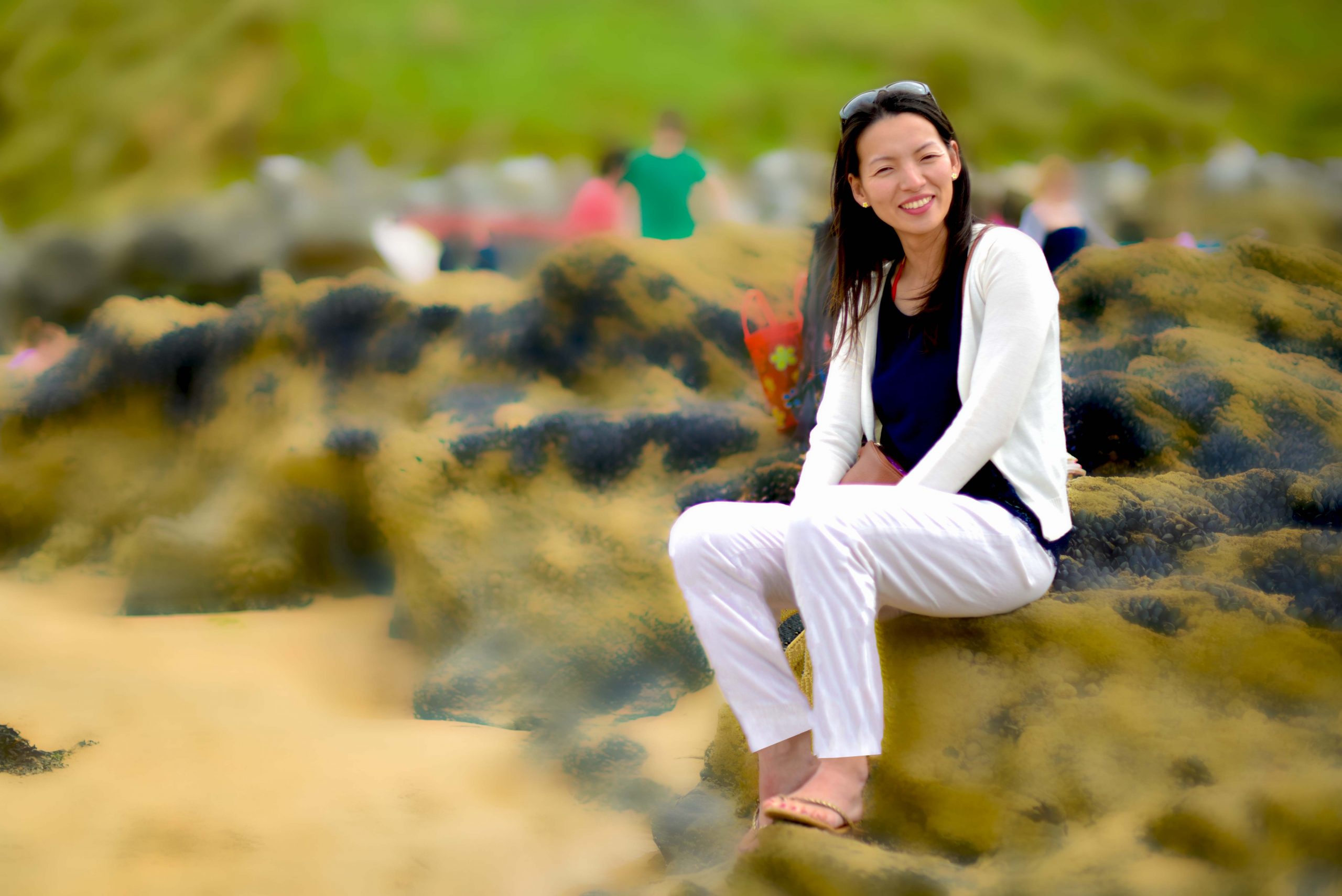
Mayumi works for Islamic Relief Worldwide and looks forward to Ramadan every year. “As my colleagues begin to fast, I observe them striving to do as many good deeds as possible and I sense a genuine shift in the atmosphere within the office.”
The change in the office environment brings about a feeling of “peace, unity, and harmony where everyone treats each other with respect and compassion. Especially towards to those who are less fortunate.”
The ideals that she sees being practiced also reflect her own beliefs as a Nichiren Buddhist and this reminds her that “we are all striving towards the same goal, to make the world a better place.” Ramadan has opened up opportunities for multi-faith dialogues, she has broken fast with her colleagues and remembers the sense of friendship and unity.
This month has made her more reflective, “it has made me reflect on my own spiritual journey and helped me to become better by increasing compassion and gratitude for what I have. I wish all my Muslim friends and colleagues a blessed final 10 days with your friends and families.”
Day 28: Ramadan in the Philippines with Cashmer
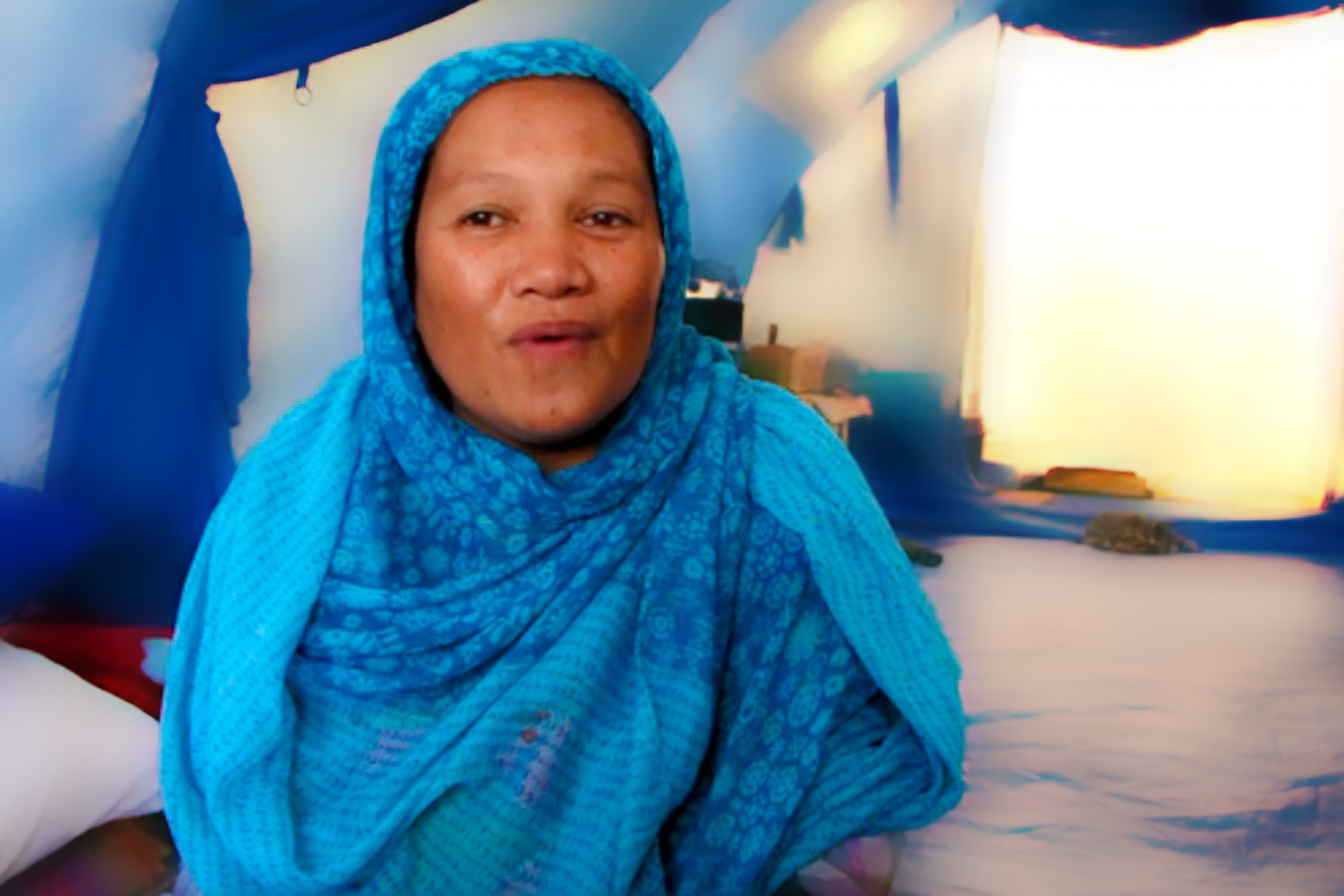
Cashmer is 38 years old, she’s been displaced from her home due the conflict in Marawi City. For her Ramadan is a special occasion, “a time when one can be closer to Allah, and a time when people share their blessings with one another.”
During Ramadan she wakes up at 1am to cook food for herself and her family. She wakes up all her children so they can fast together and neighbours often share food with each other. “All of us wake up, the neighbours, the children, and everyone is happy. That’s something I always remember.”
In this holy month her community gather together, pray together, and everyone tries to read the Qur’an. If her neighbours don’t have something then she shares whatever she has. “There are people here who were rich before the conflict and now they are very poor, we are all equal as people. When I have something, I share with others.”
Day 29: Ramadan in England with Mohammed
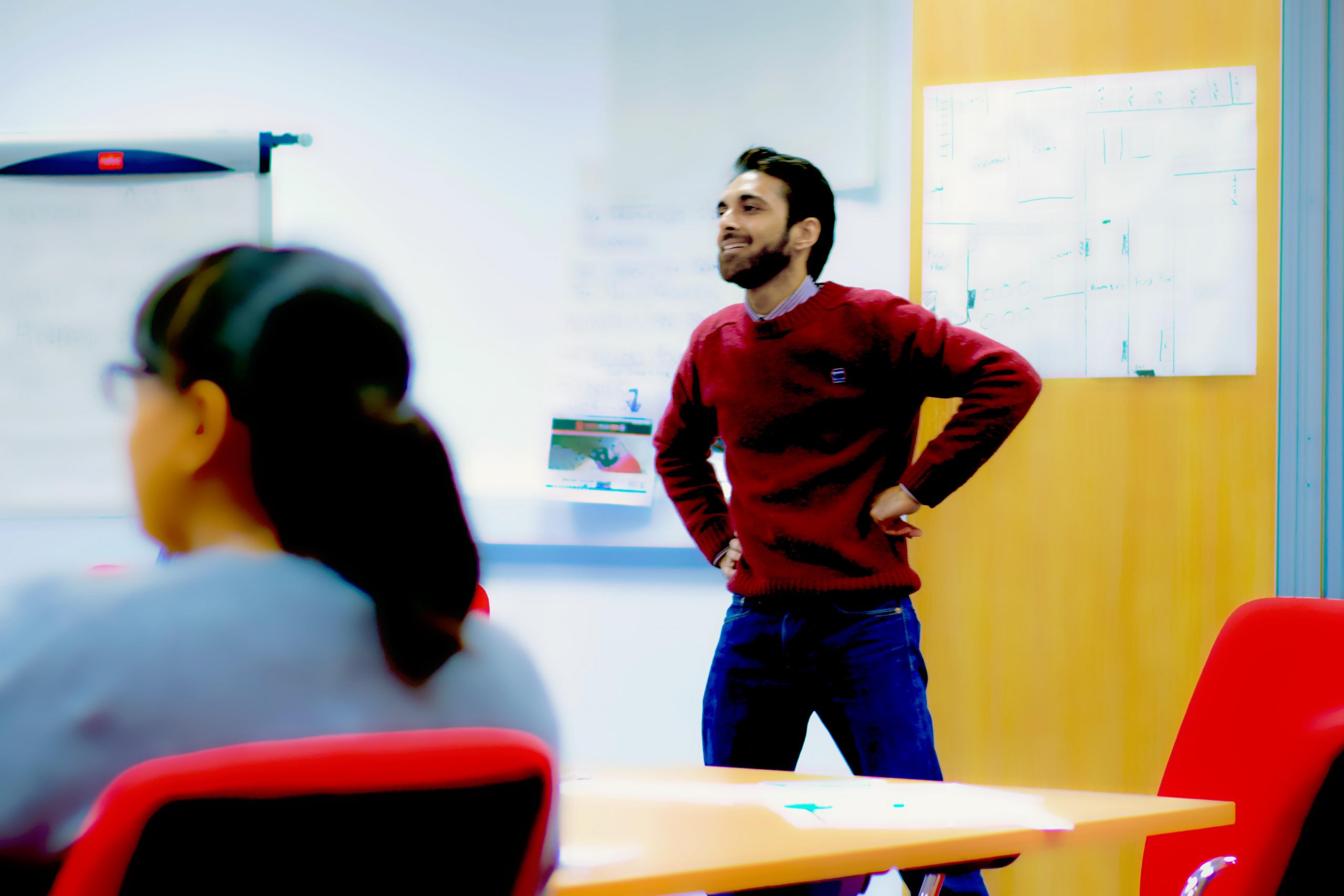
Ramadan brings about many in Mohammed’s household. It’s a time when his family reflect upon the importance of the month and focus on doing good deeds. “The TV is switched off, the Quran and Islamic literature is being read, and we try to promote an environment in which to do good deeds.”
Although Mohammed reads Quran throughout the year, this holy month allows him to further practice his recitation by leading taraweeh prayers. He experiences a level of peace and contentment throughout this month that he does not feel in the rest of the year.
One thing he finds amusing is how conversation with a fasting person tends to gravitate towards food: “Mmmm, biryani!”
For him, Ramadan is “an opportunity to take advantage of the multiplied blessings and concentrate of achieving inner peace.”
Purify your wealth by paying your Zakat on time.


